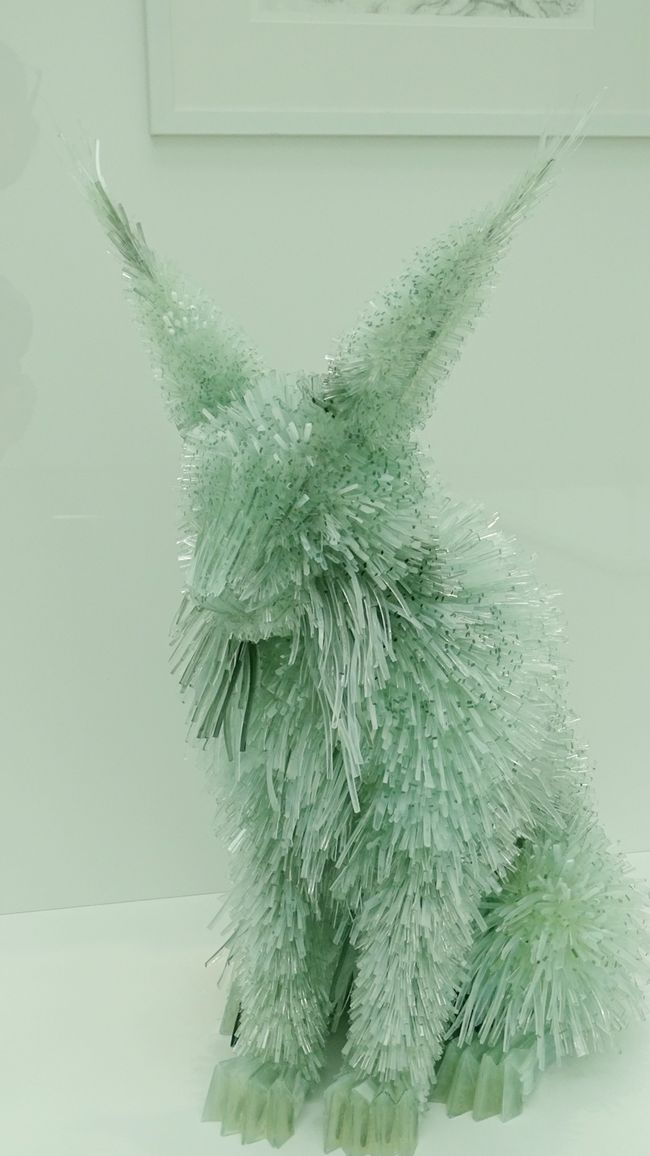Week 2: Animals, Art, and Water Masses
Басылган: 21.05.2022
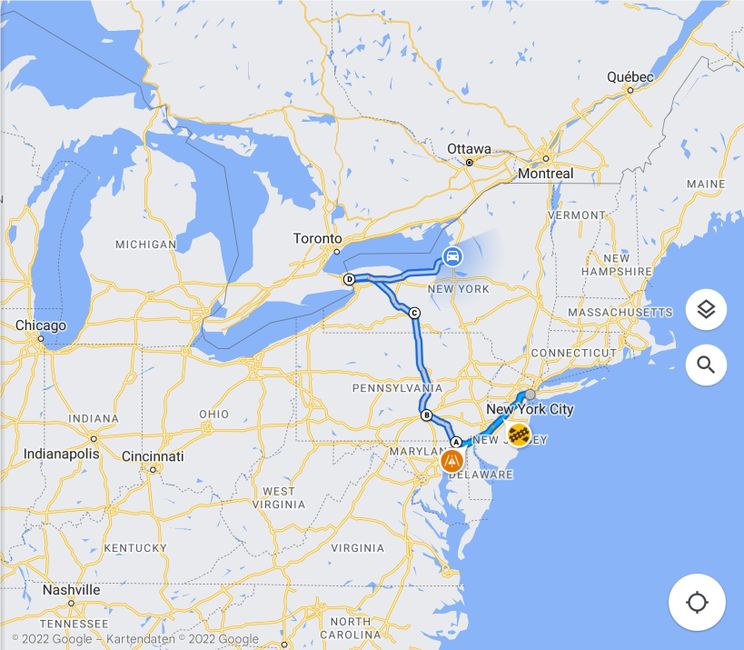
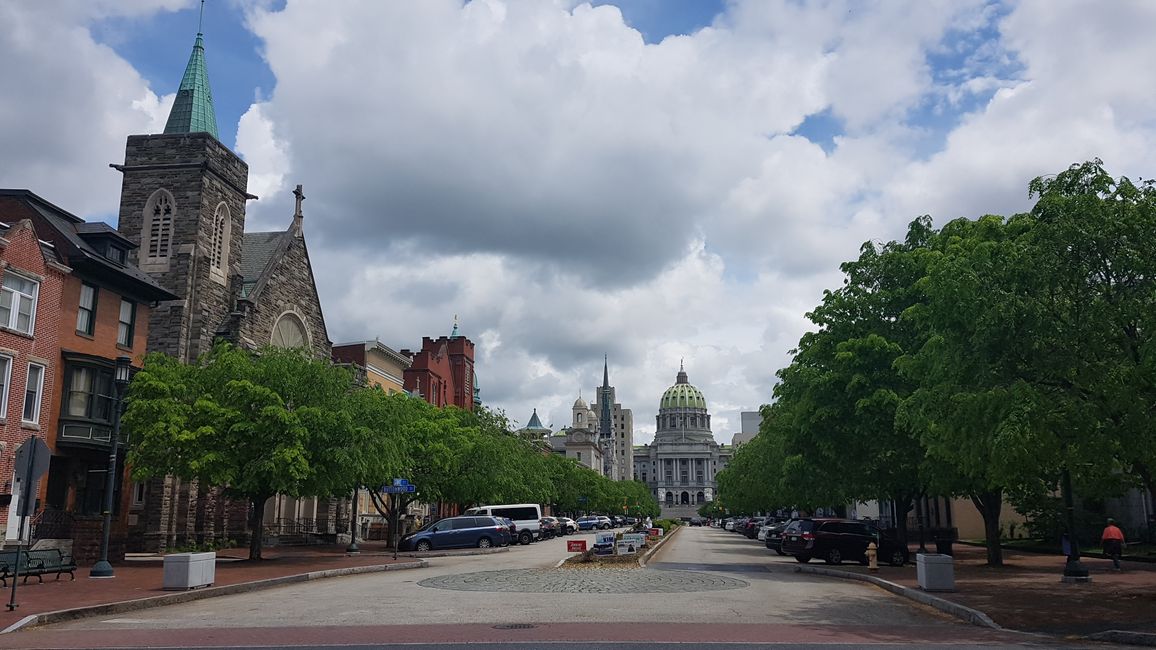
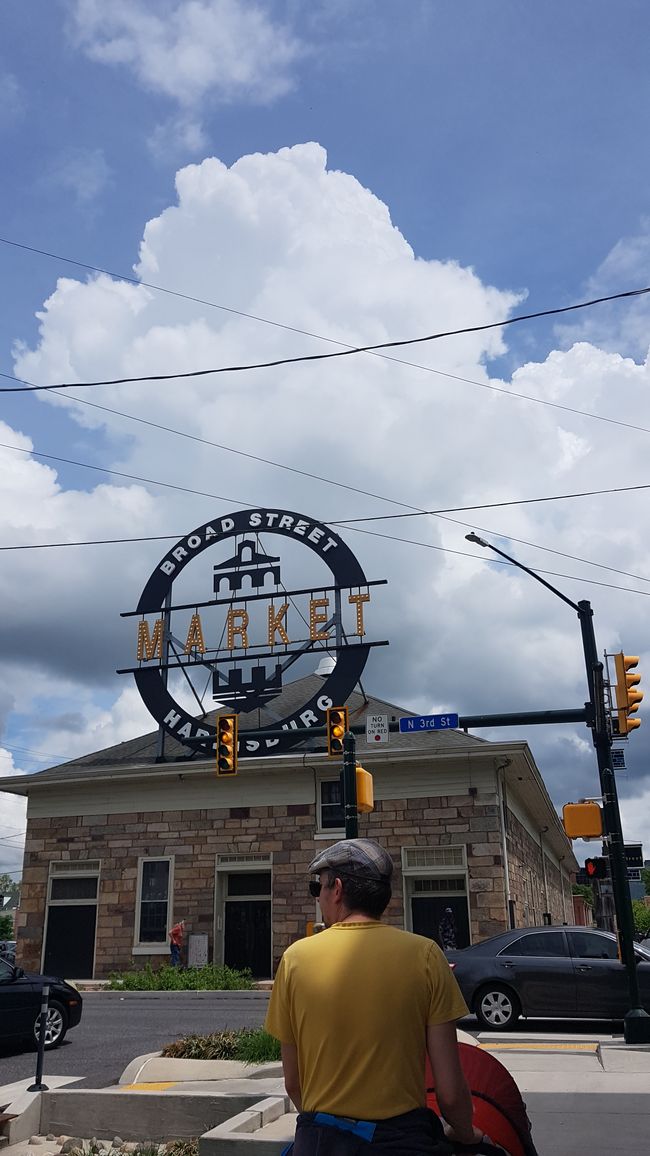
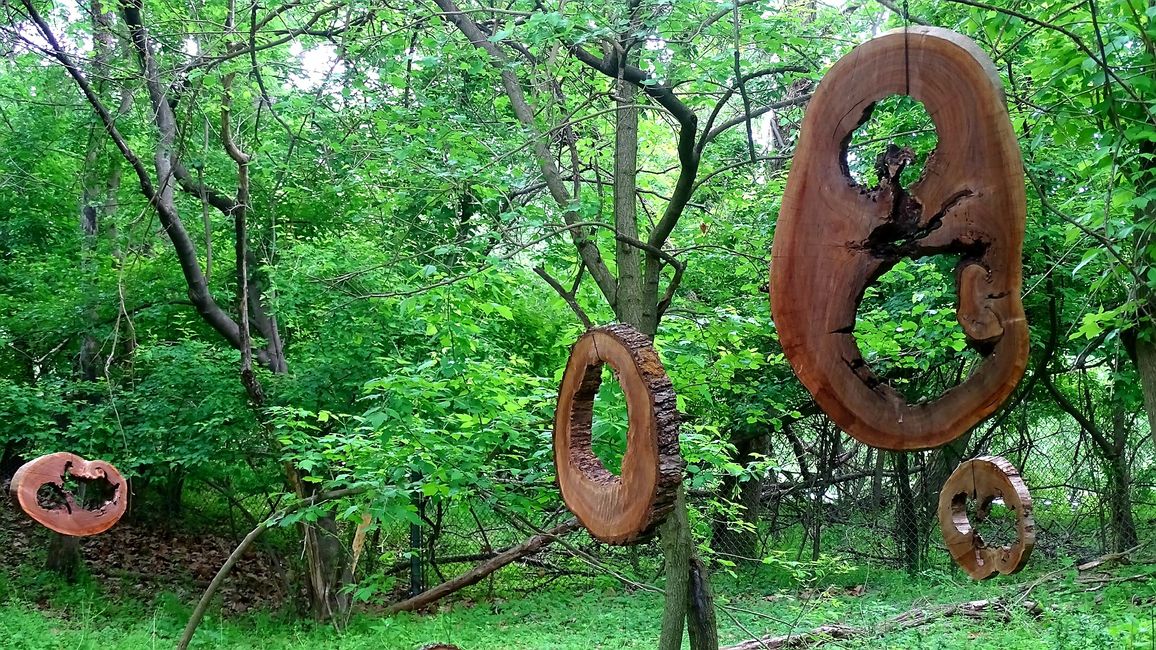
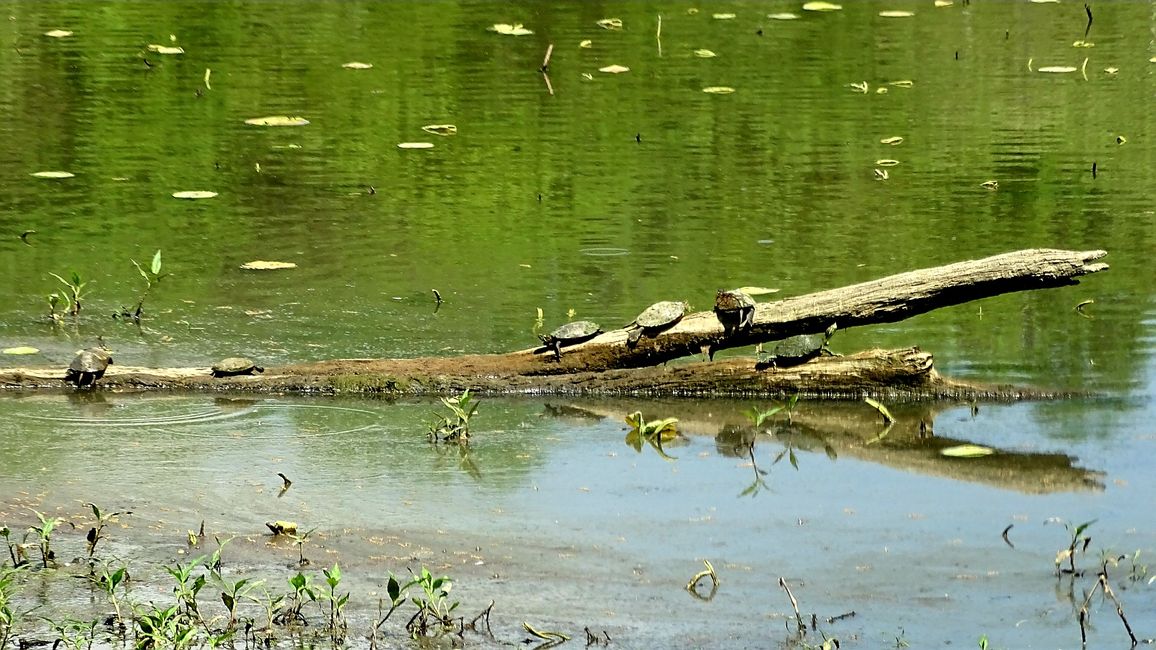
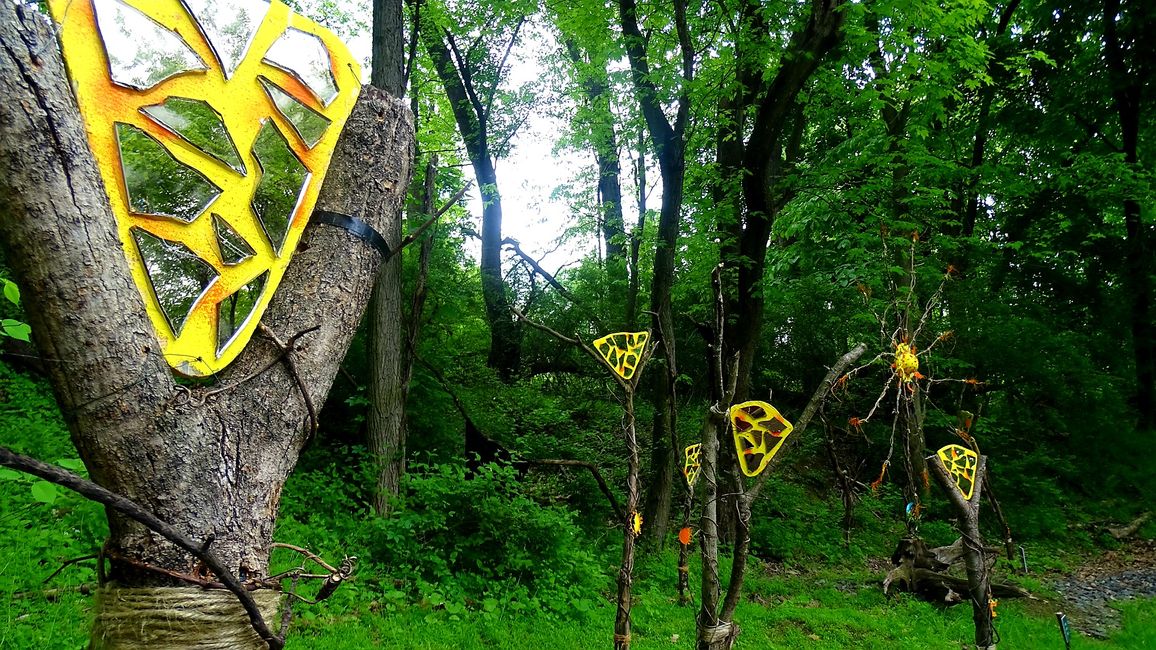
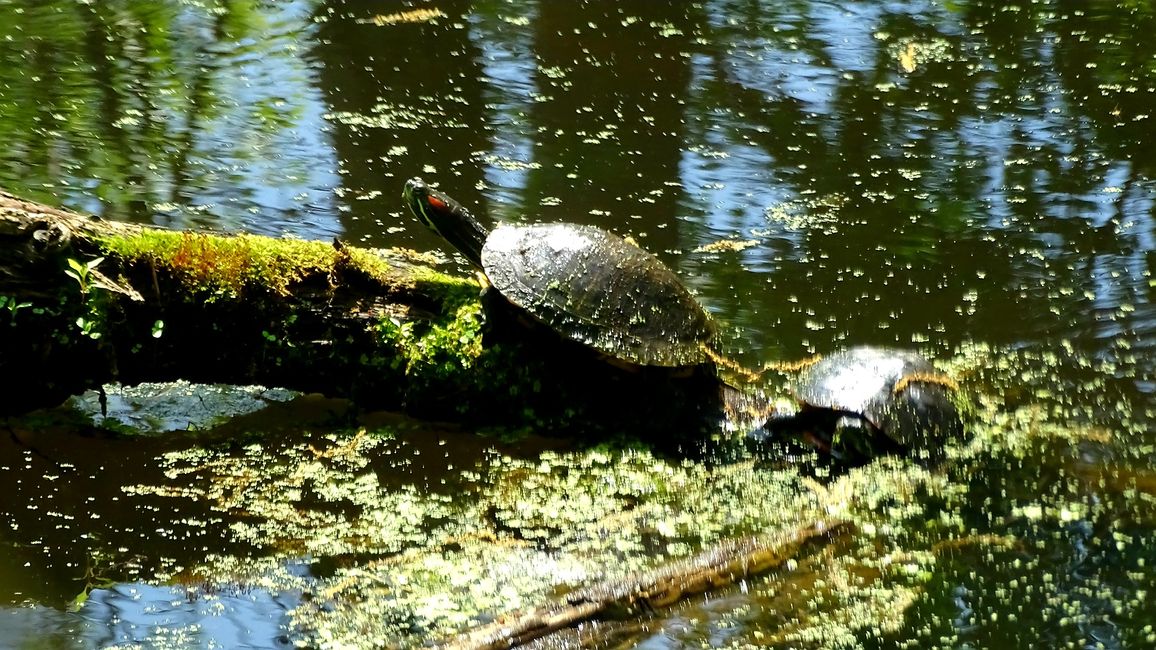
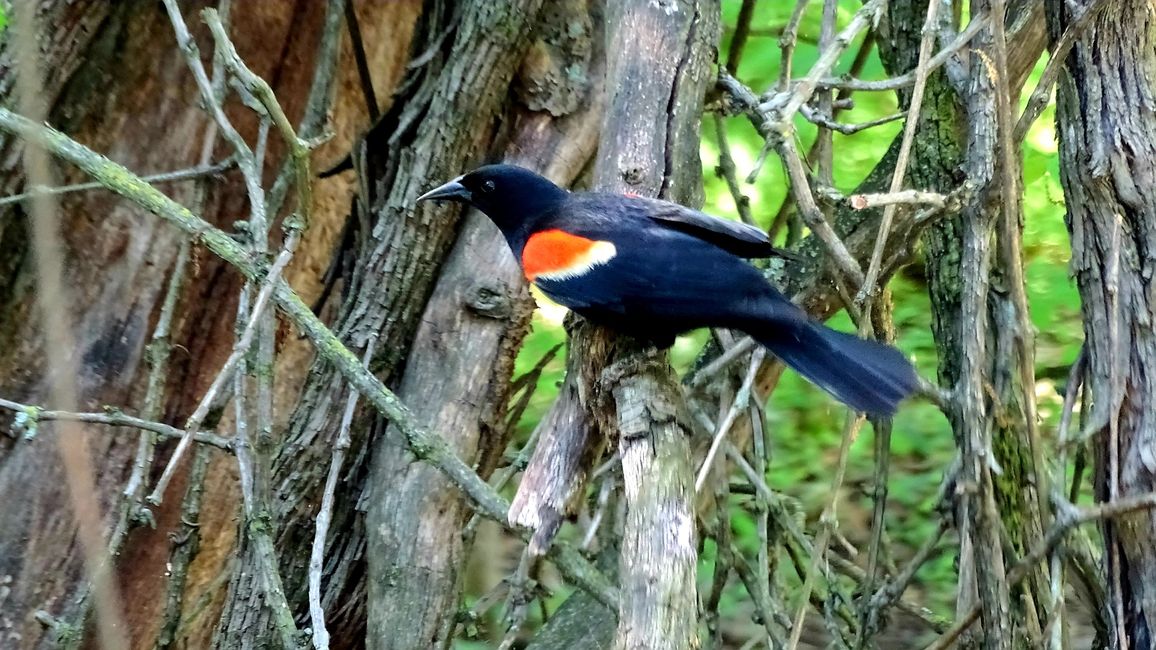
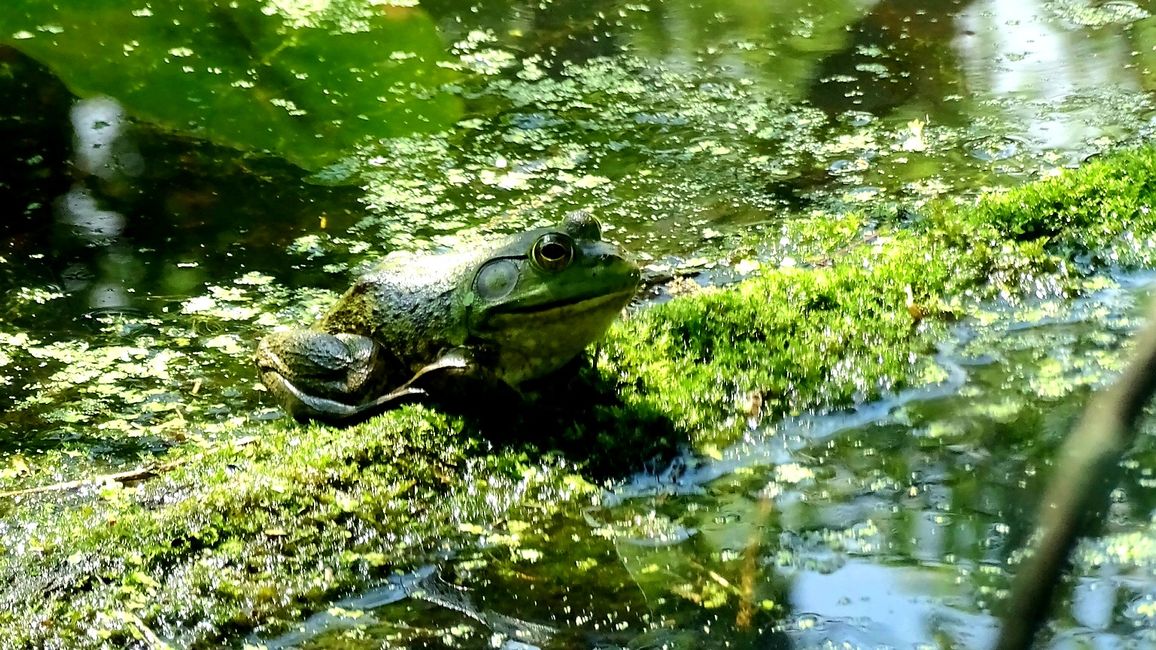
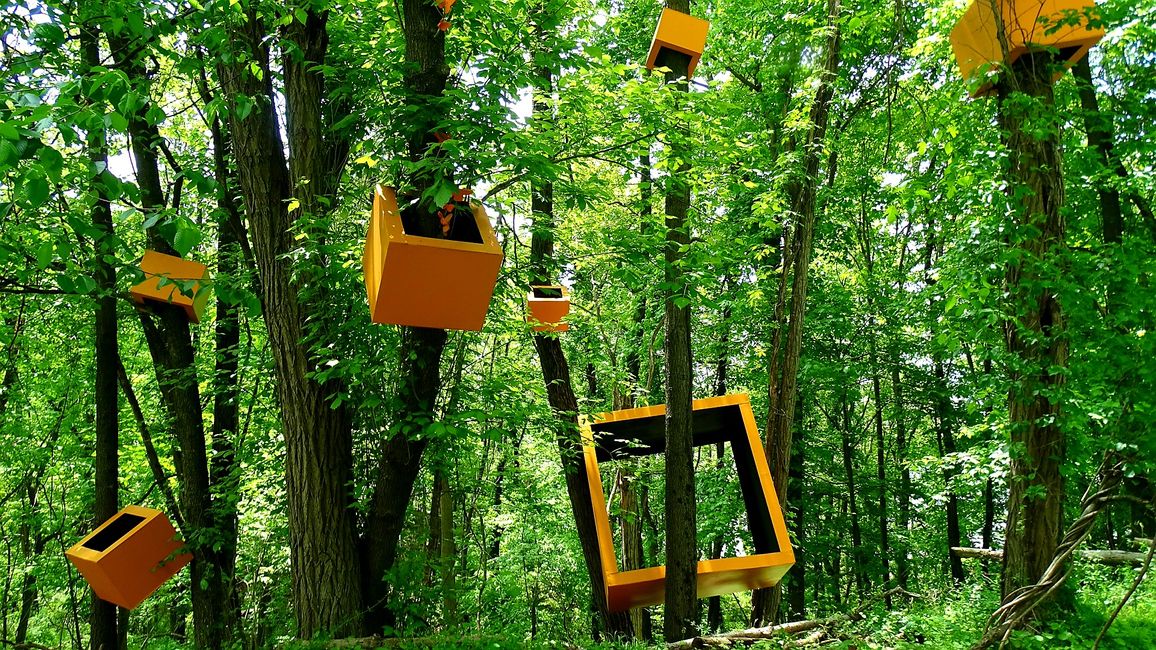
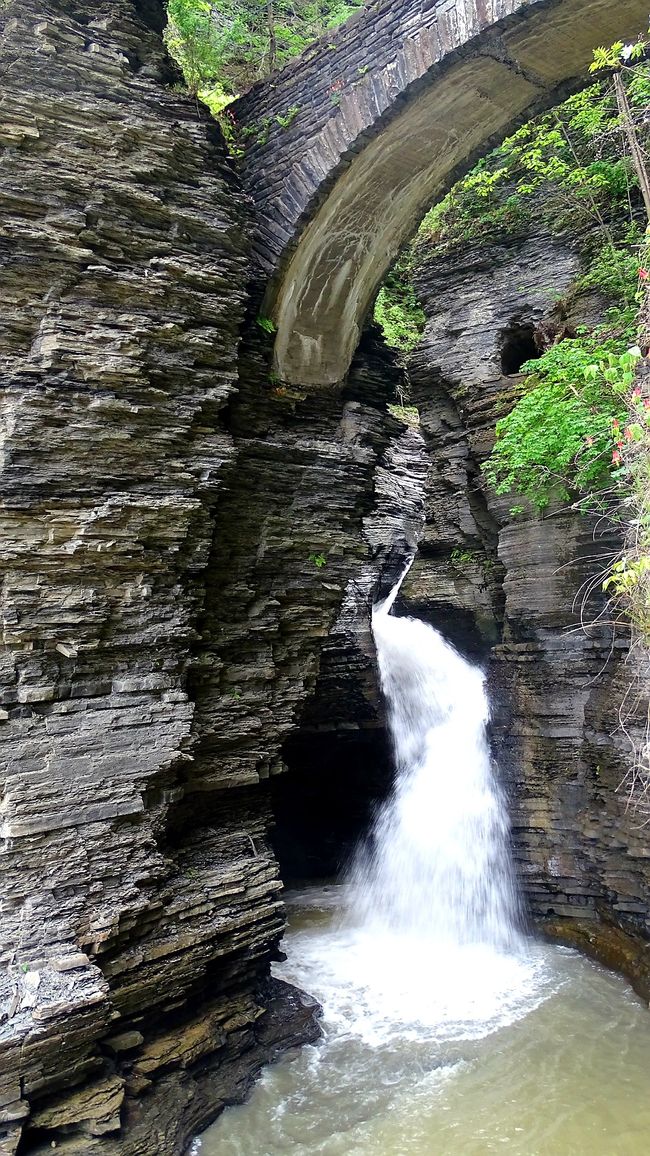
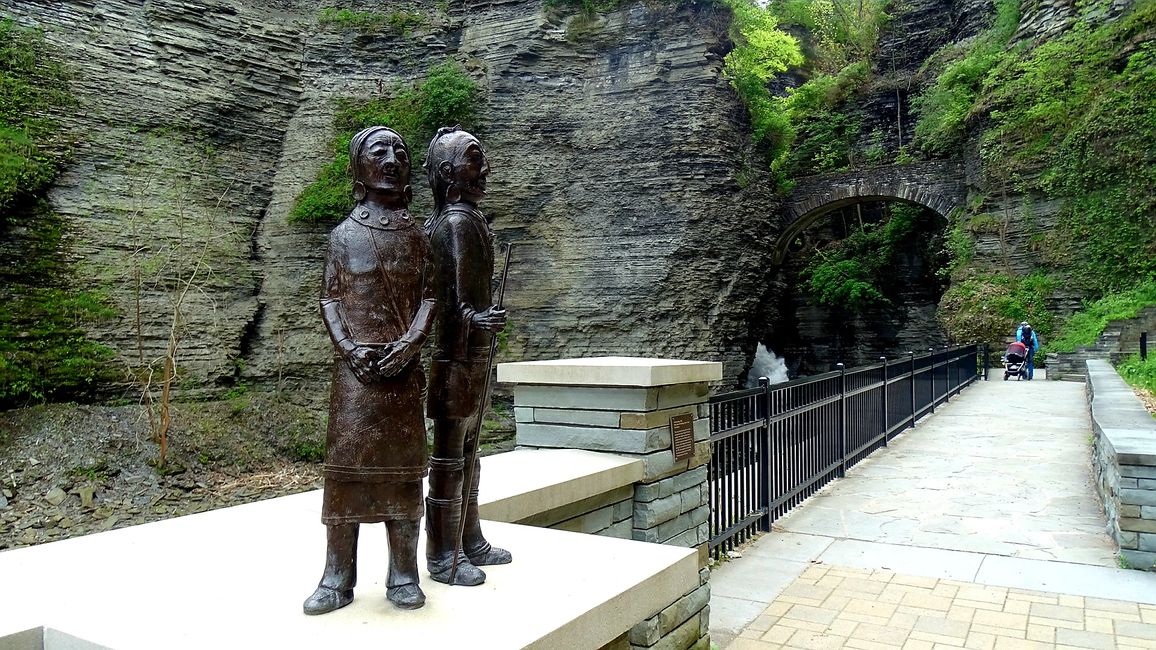
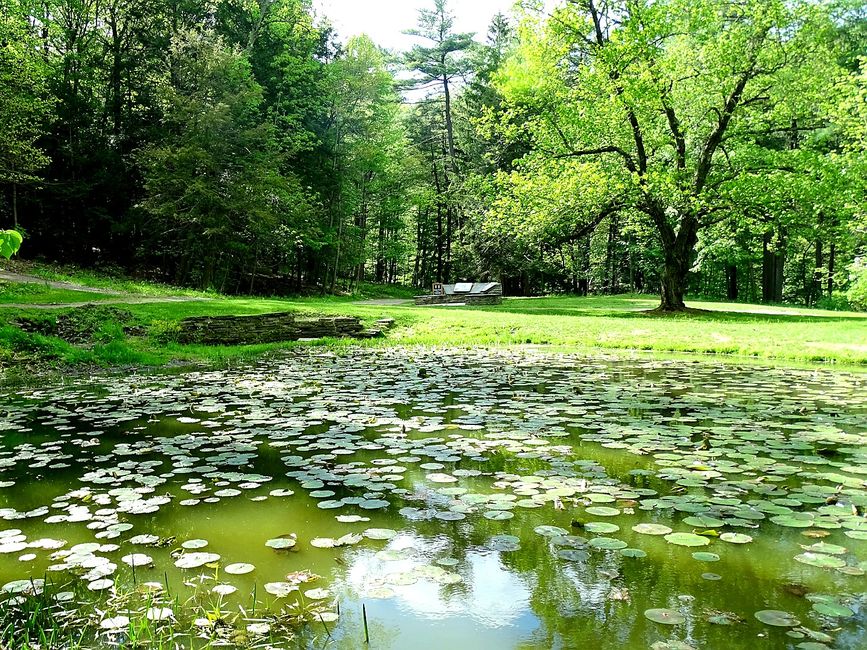
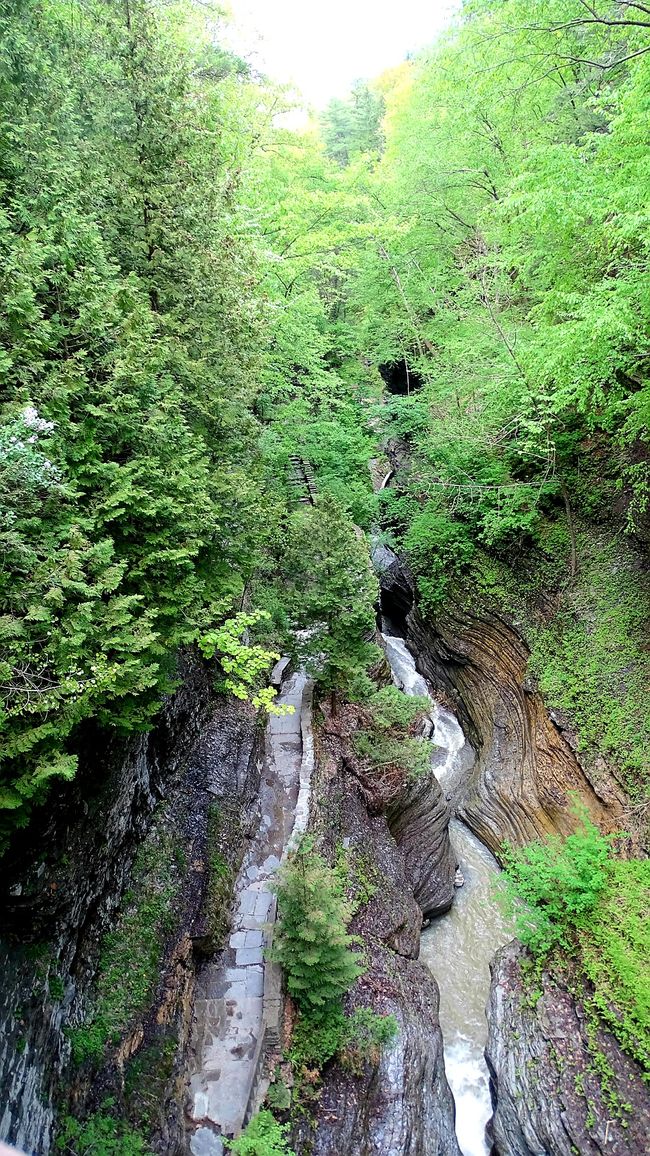
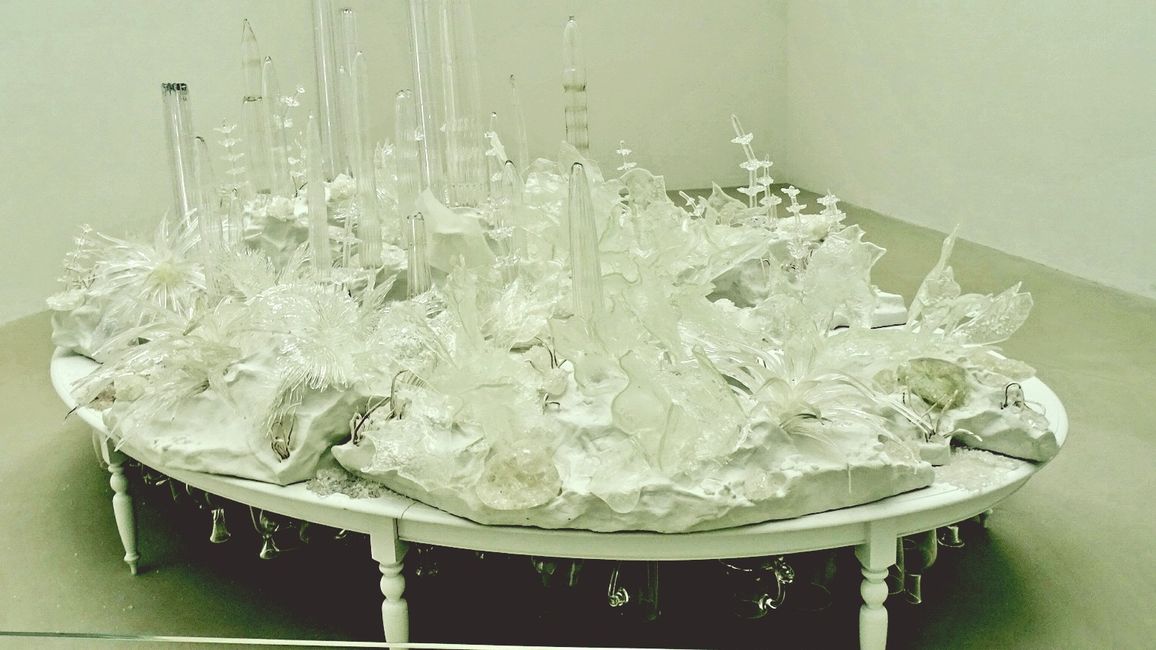
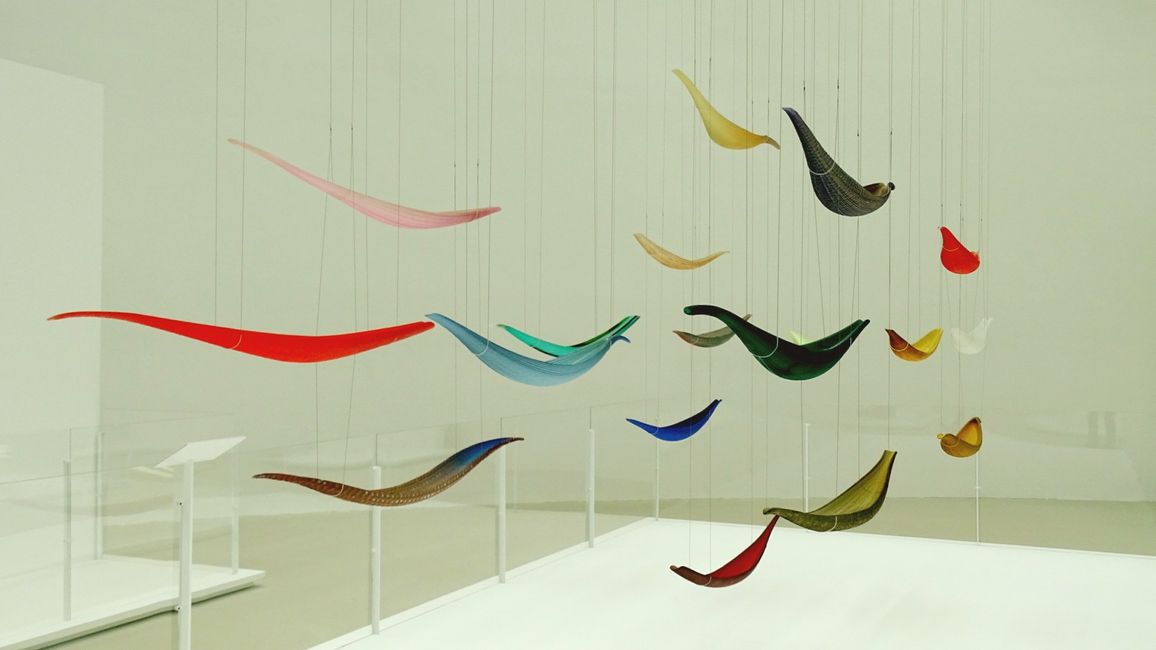
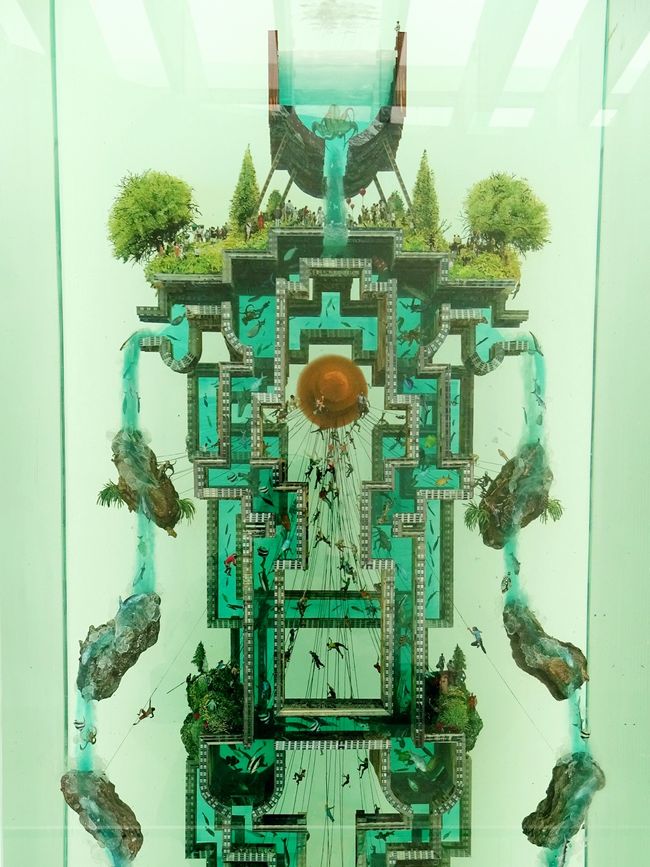
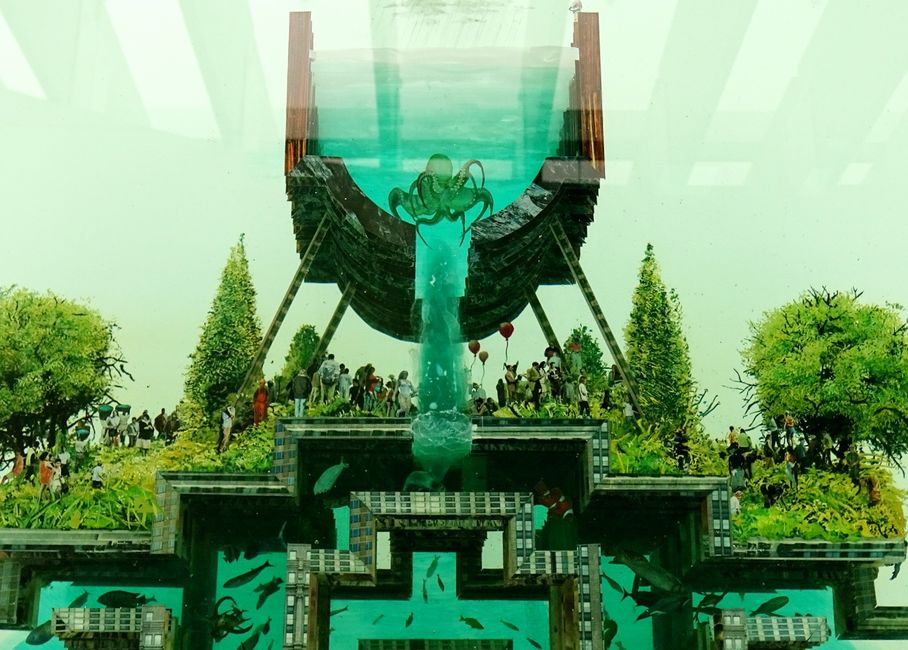
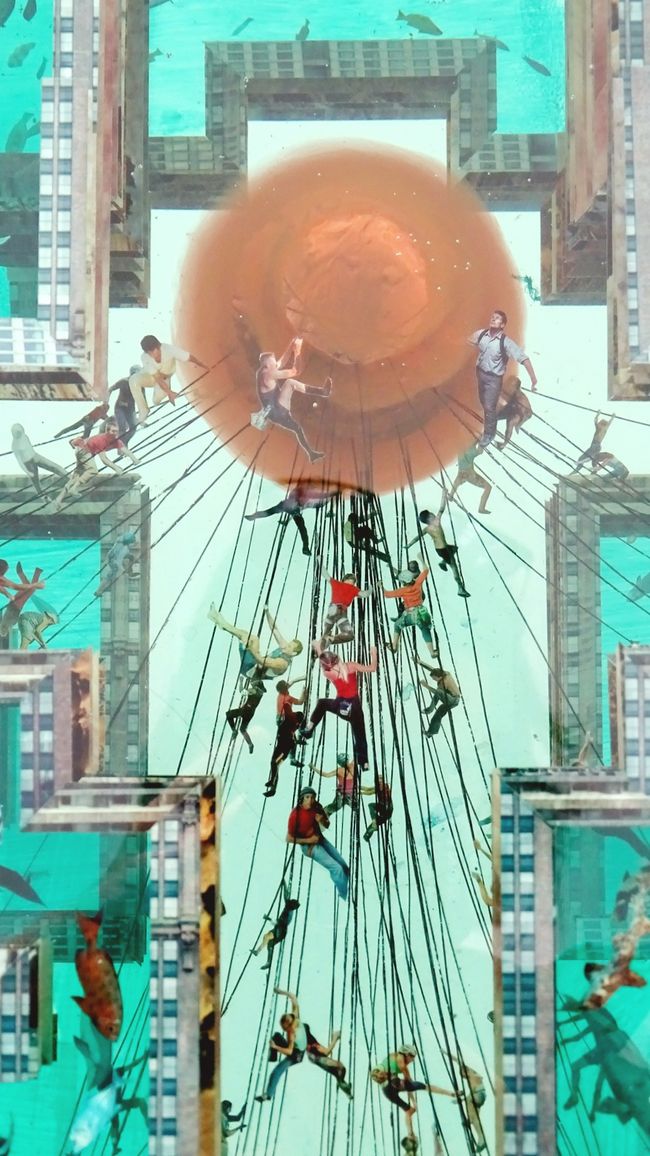
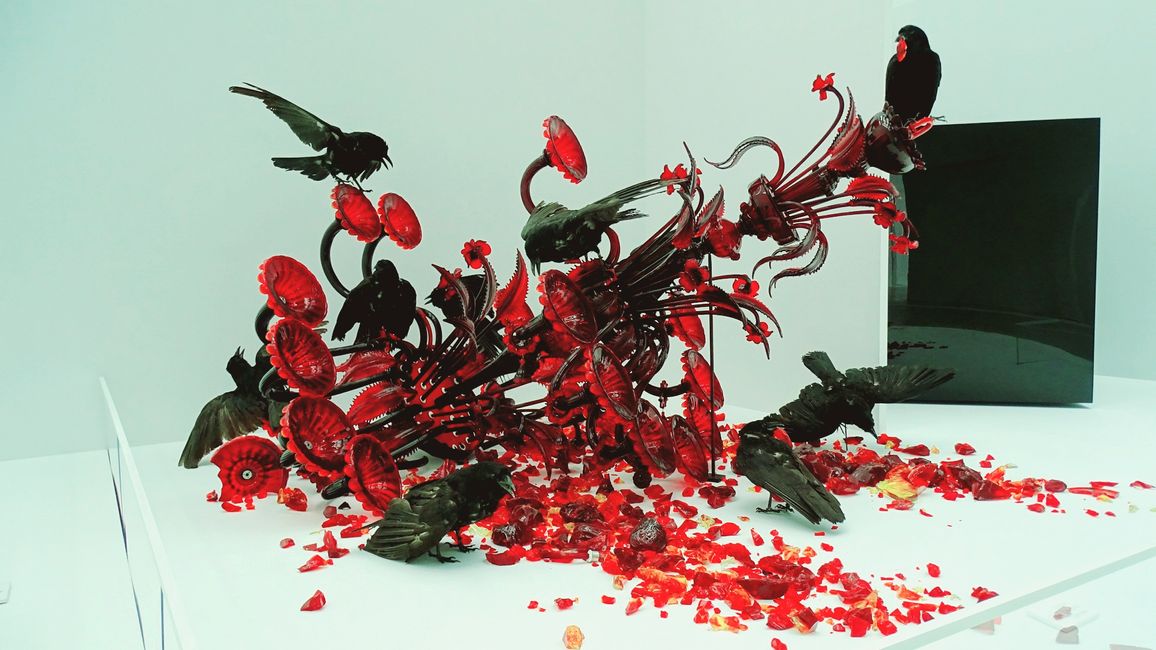
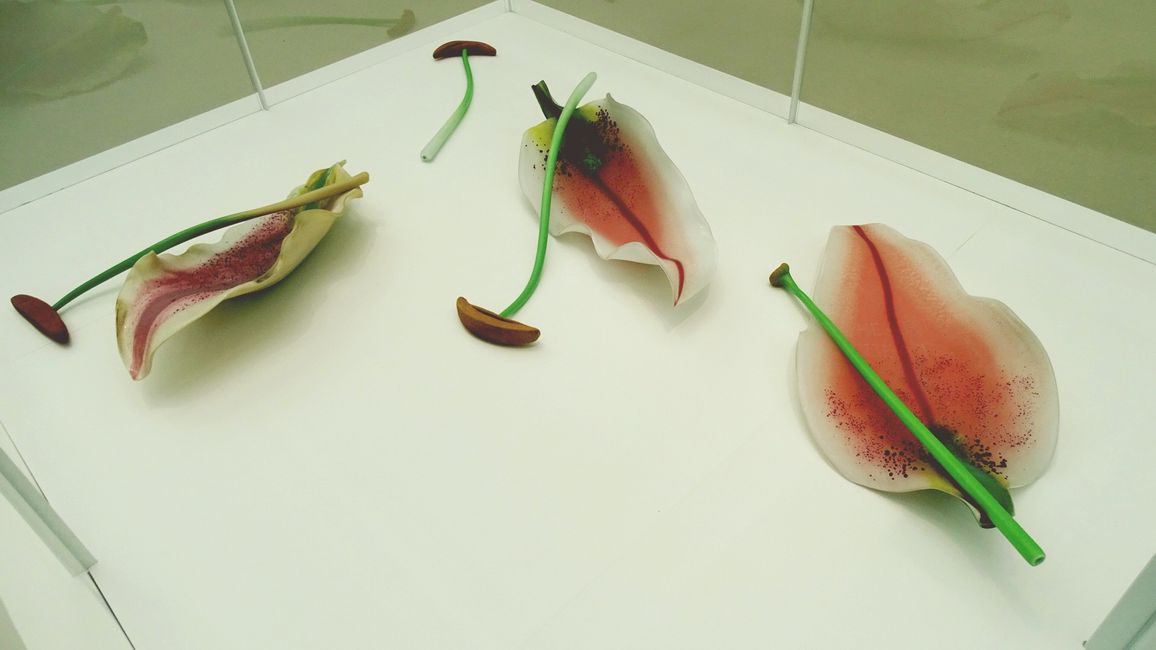
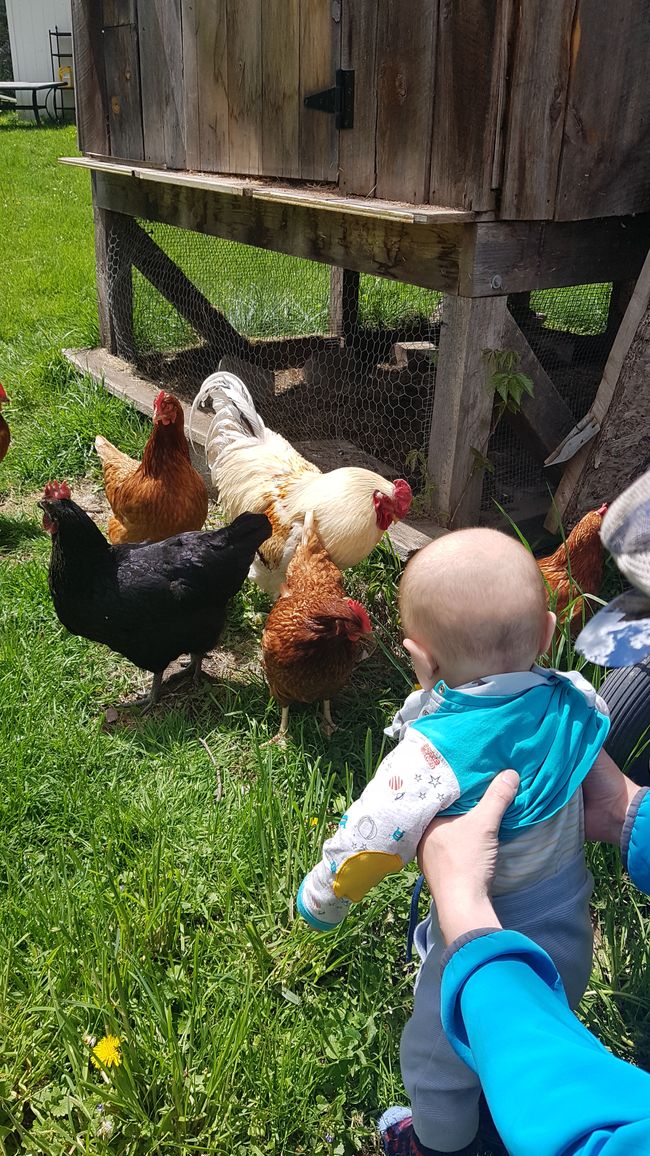
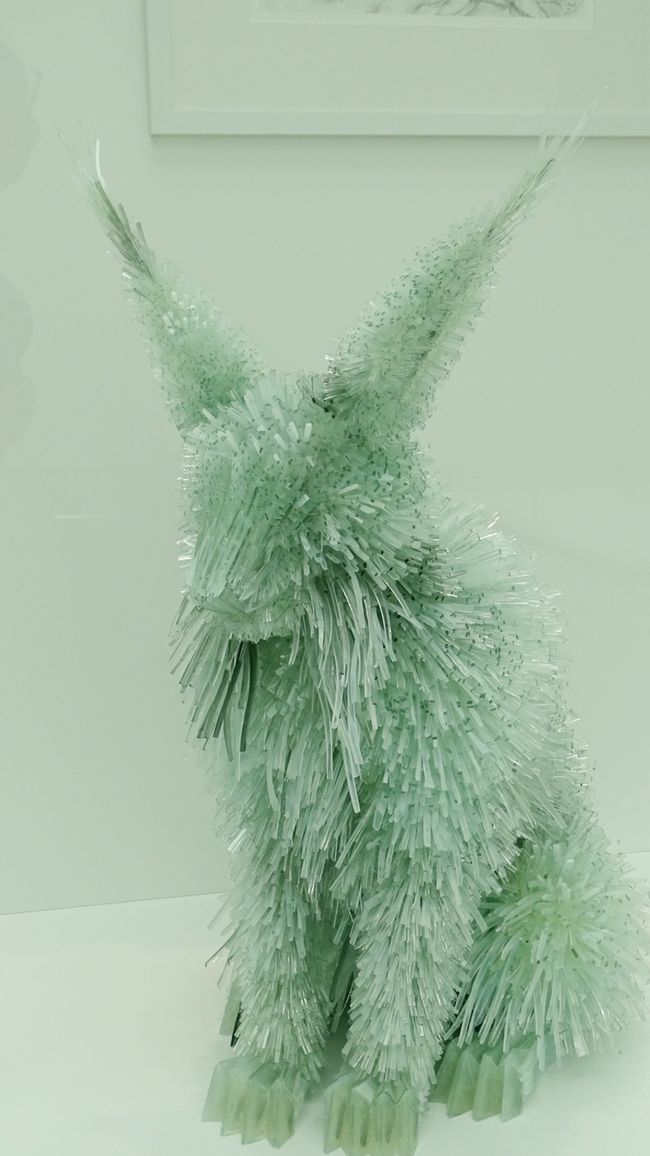
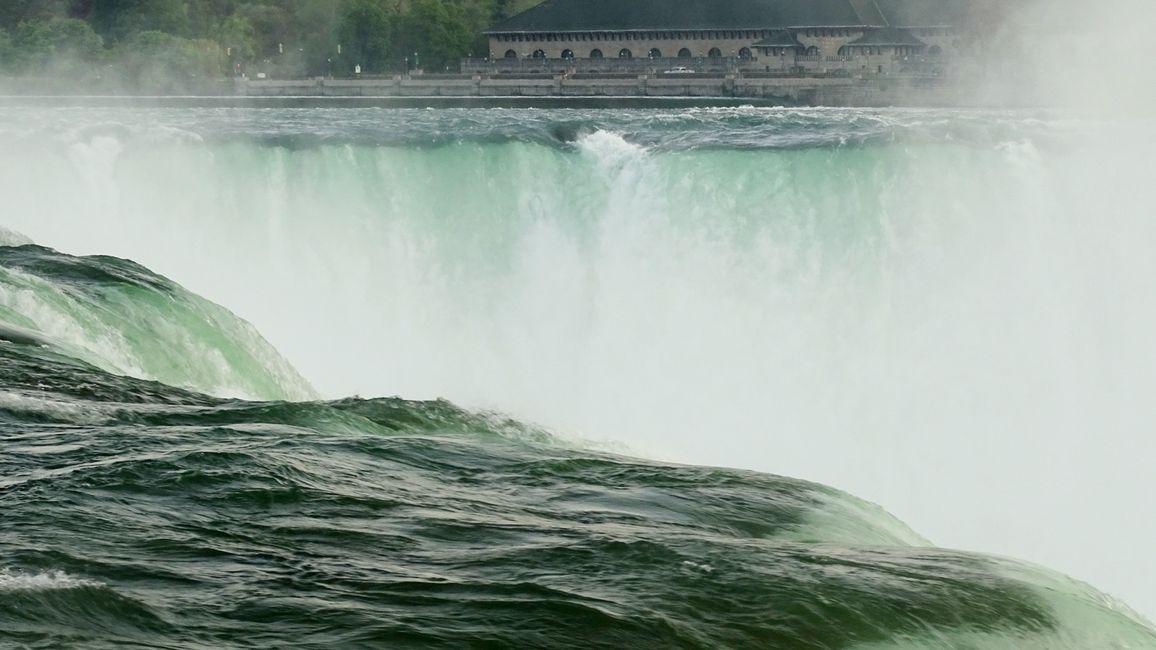
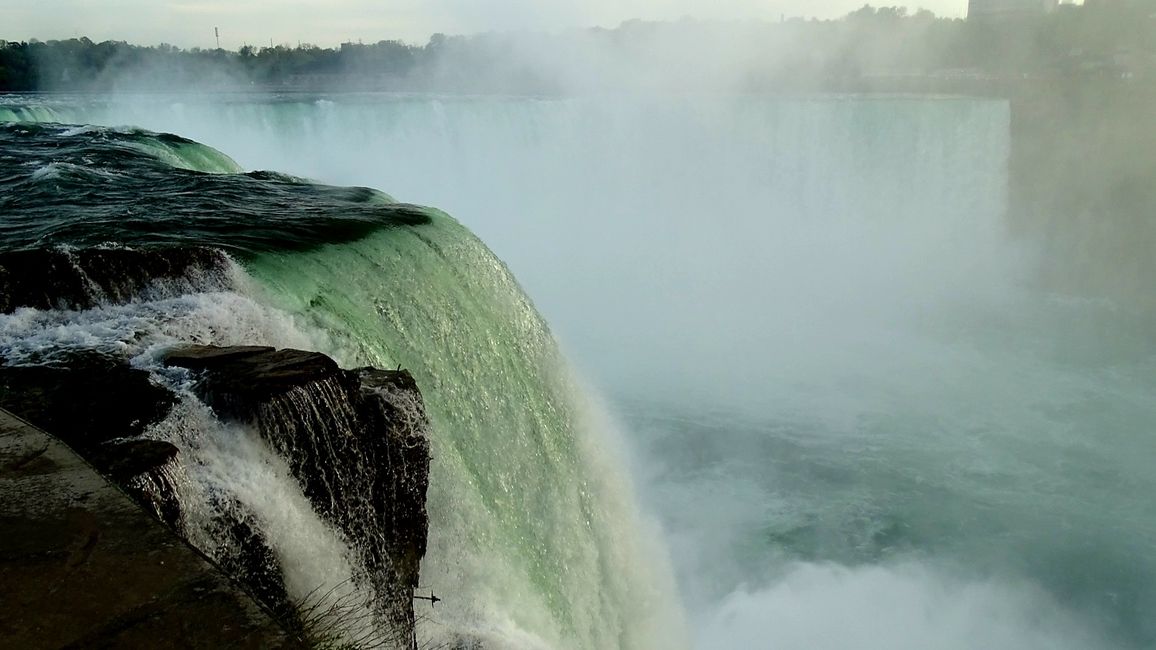
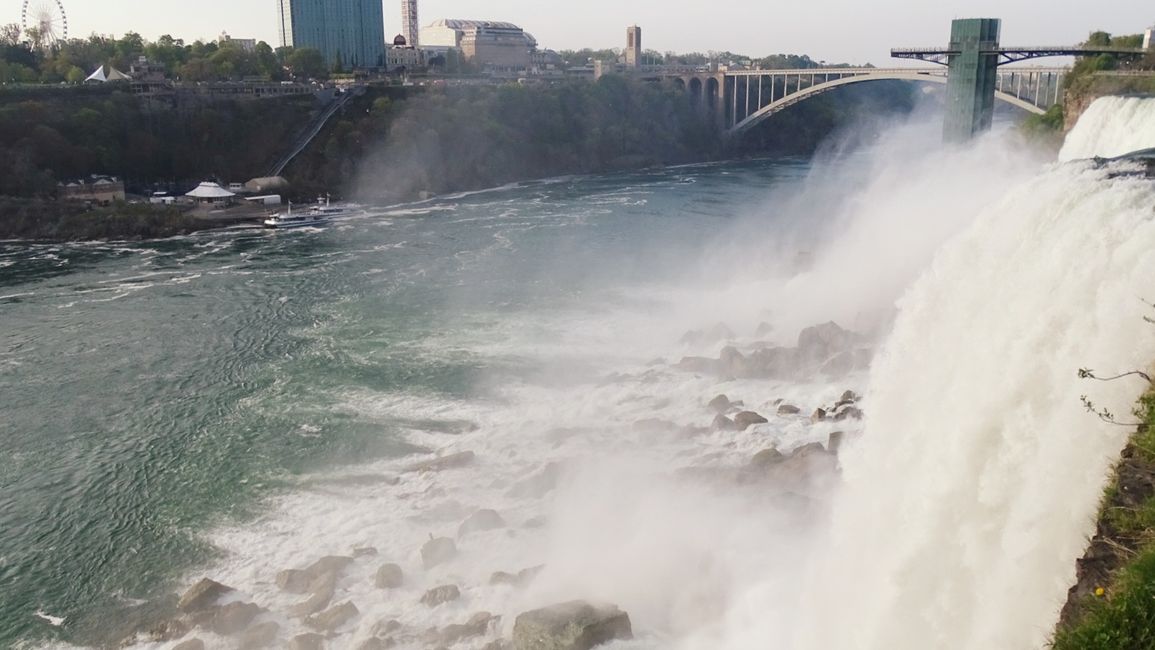
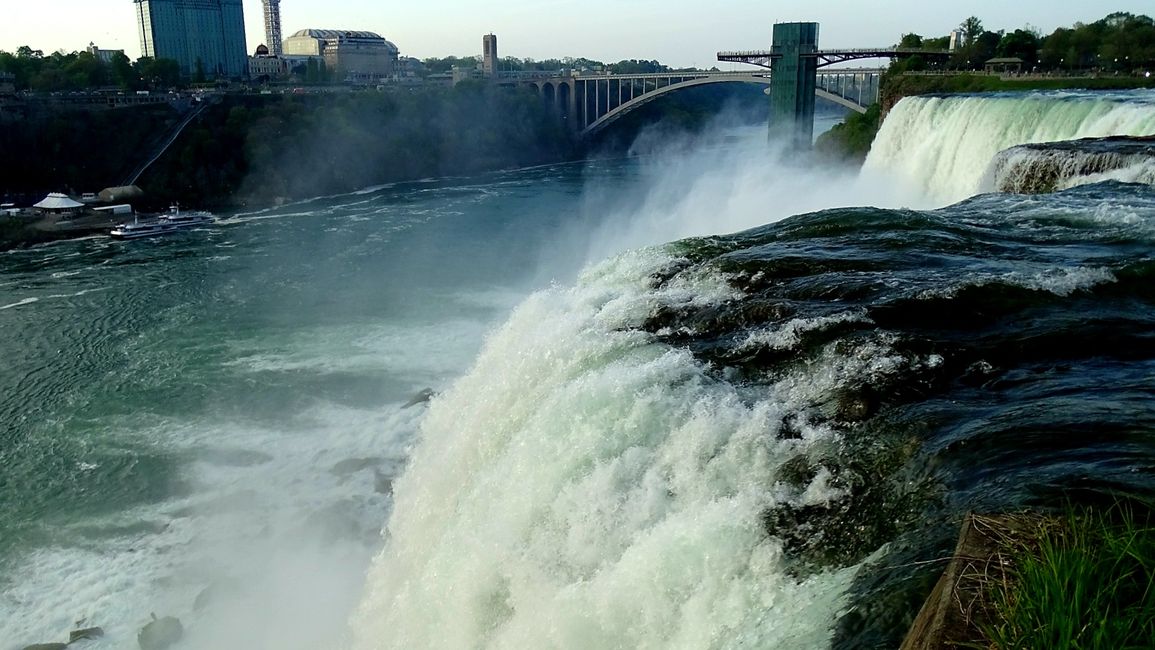
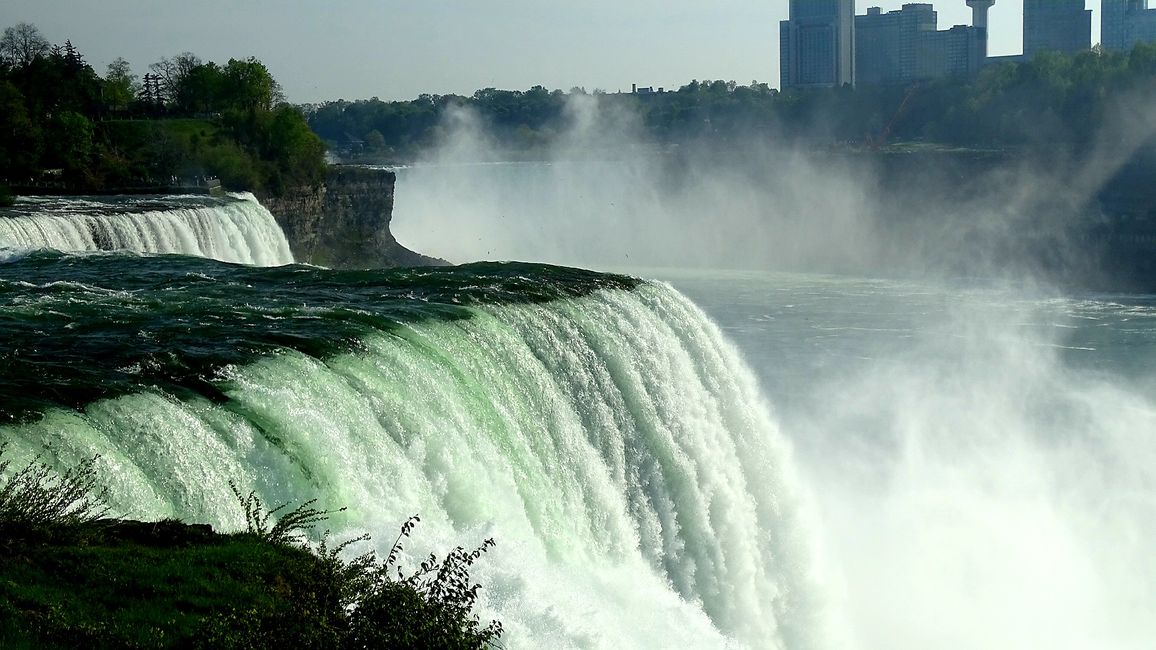
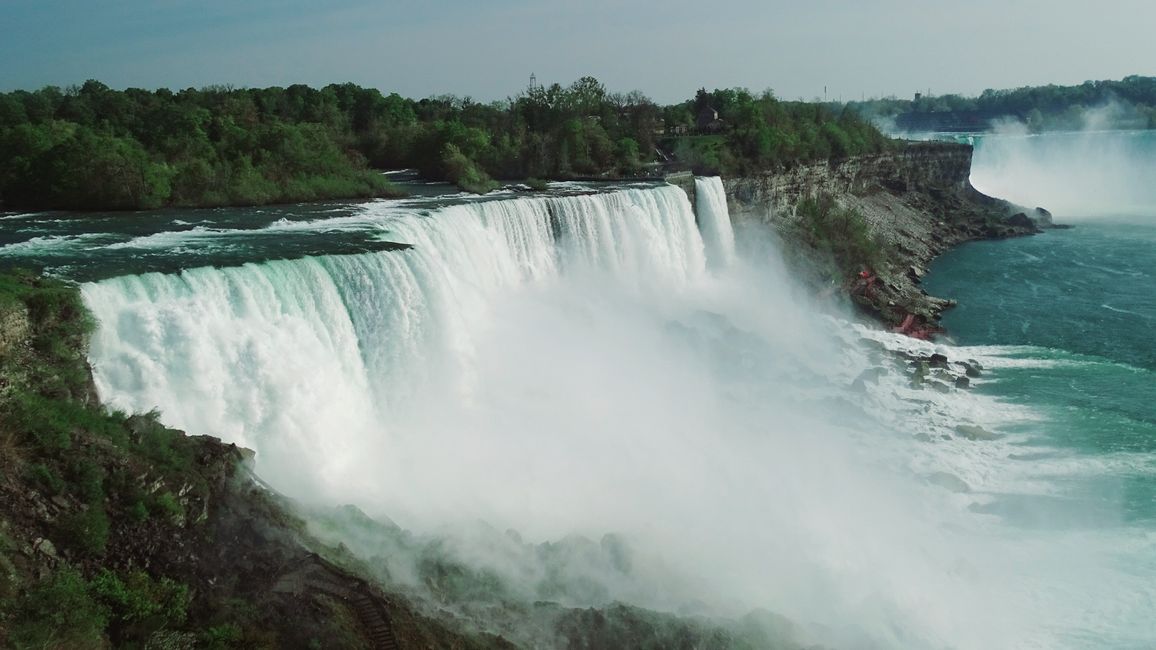
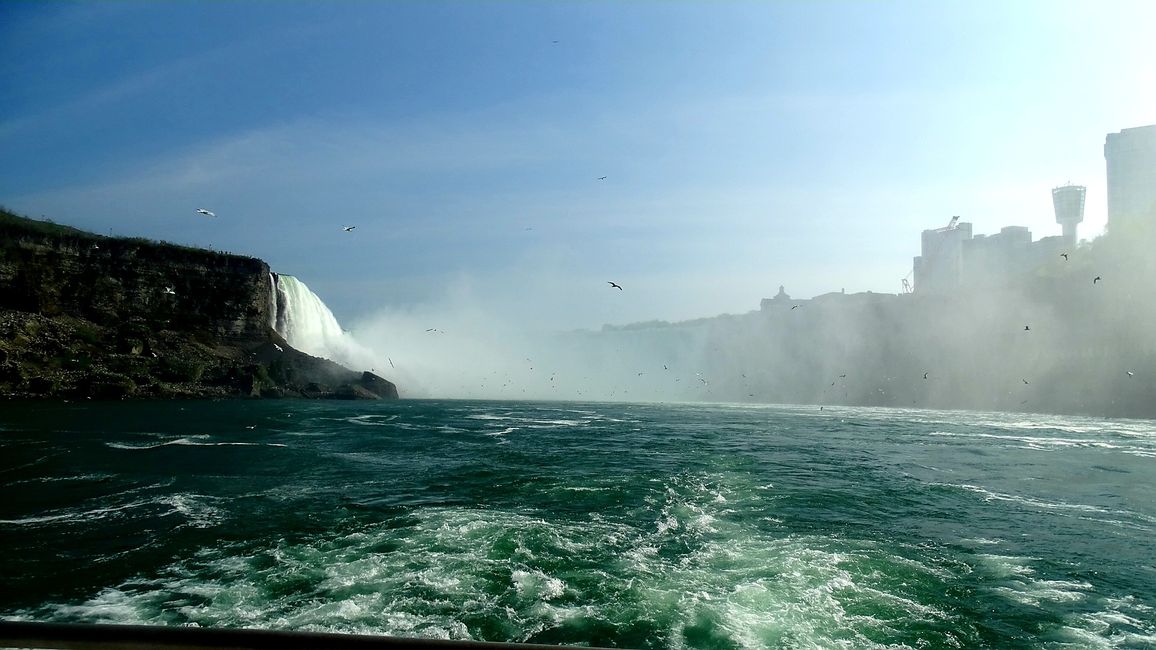
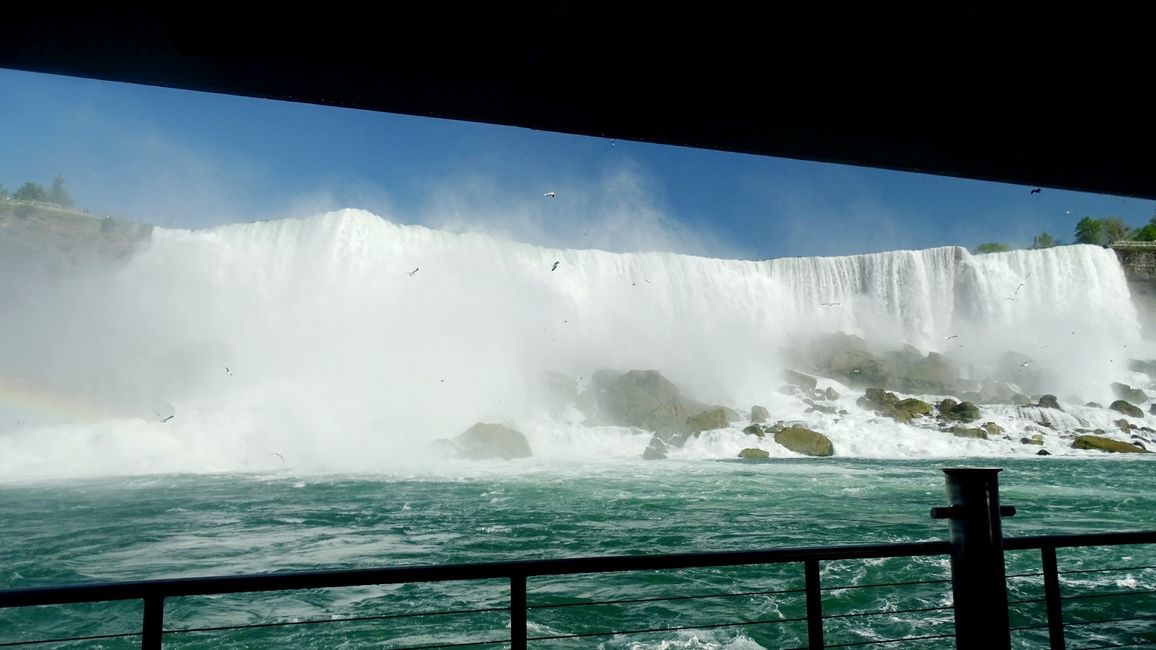
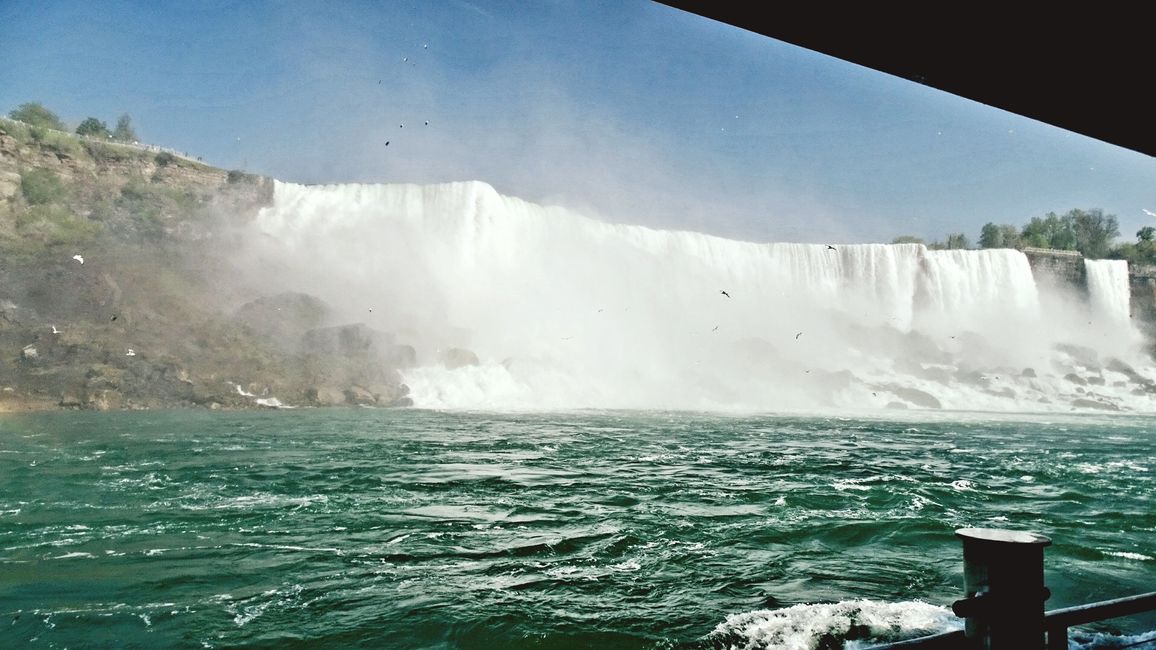
Бюллетеньгә язылу
We have been on the road for a little over two weeks now, and we are slowly getting more experienced when it comes to packing, unpacking, and timing meals for Maurice. We have already had a tourist highlight and I continue to learn about driving on American roads. But now let's start from the beginning...
Our Routine
We have settled into a routine of staying three nights in one place before moving on. This way, we can comfortably cover the route from New York to Pennsylvania, Niagara Falls, Montreal, and back to New York in the three weeks of our first road trip. I have included our current route as a screenshot from Google Maps here:
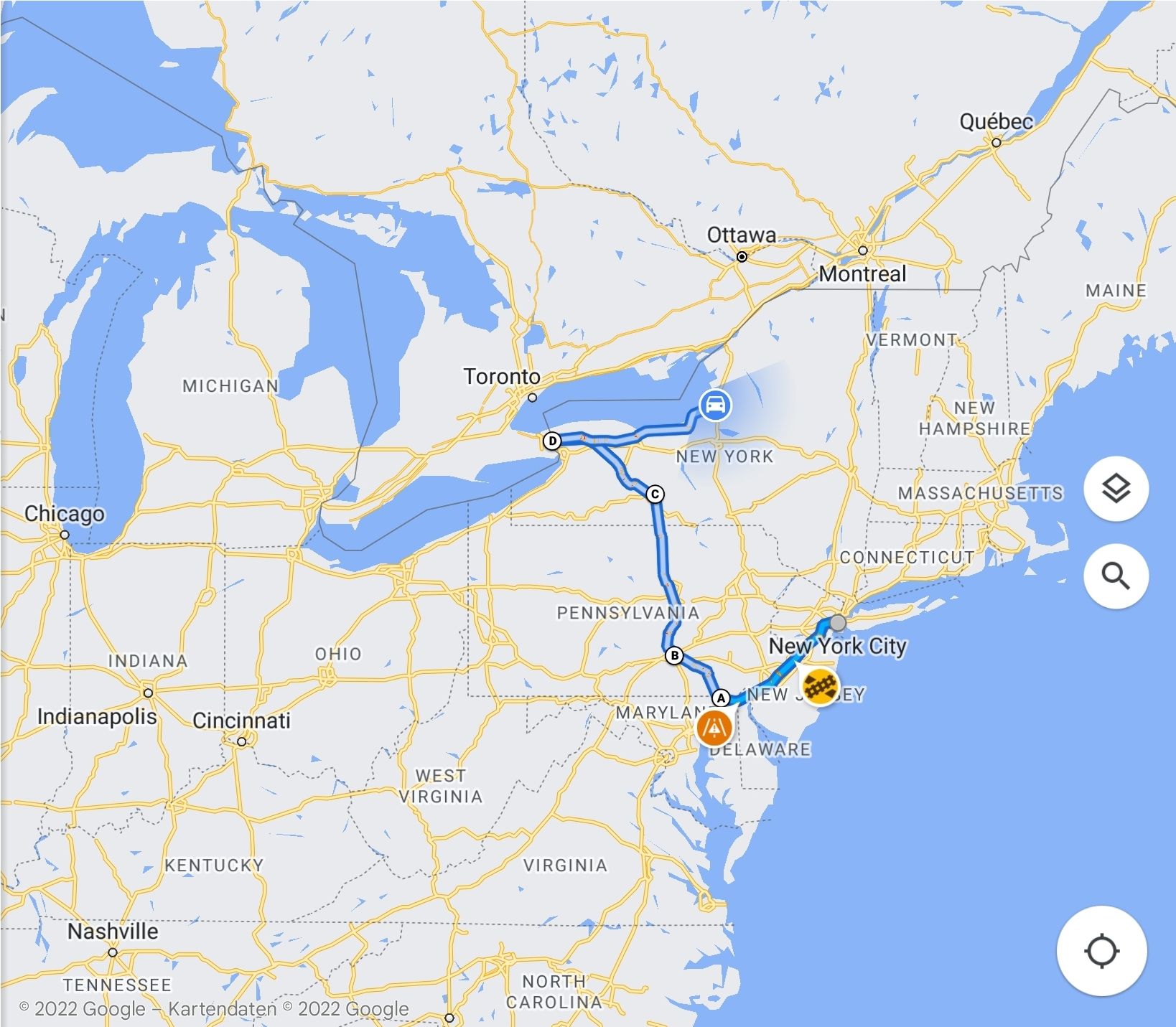
Right now, we are in a small fishing village called Pulaski on Lake Ontario. Unfortunately, you can't buy delicious smoked fish here because people catch and smoke their own fish. Our accommodation is a typical fishing and hunting lodge on the ground floor of a large wooden house in the middle of nowhere.
Driving on American Roads
The first lesson I learned on the streets of Manhattan: Honking is definitely part of it here. Horns are constantly being used to greet, indicate something, make way, or vent frustration. The latter sounds something like this: tuuuuuuuuuuuuuuuuuuut. So just keep your hand on the horn. Someone behind me did that when I was on the wrong turning lane and didn't just keep driving.
Next lesson: Watch out for school buses! If a school bus is coming towards you and the lights on the front are flashing, it stops and extends its stop sign, you should stop even if you are driving on the opposite lane. We are not familiar with this in Germany, and I promptly continued driving, which resulted in an angry honking concert from the school bus driver.
Speed Limits: On the highways, called interstates here, the speed limit is usually 65 miles per hour. However, hardly anyone adheres to this. On the other hand, the American police are very strict and like to catch speeders. I can only explain this constant speeding by the fact that drivers here know where the speed controls take place and only drive slowly there. Google Maps always predicts if there is a speed trap on the route. It is usually a police car on the side of the road. There don't seem to be any fixed speed cameras here.
Visiting my Camino de Santiago friend Kate in Harrisburg
When I walked the Camino de Santiago in autumn 2019, I met a young American woman named Kate, with whom I walked a long stretch of the way. Kate and I have stayed in touch, so it was clear that we would visit her when we come to the USA.
Kate lives in the capital of Pennsylvania: Harrisburg. It is located on a very wide and not very deep river called Susquehanna, and Kate's house is just a stone's throw away from the riverbank in a very pretty residential area.
I was very excited to see Kate again. Her house is super cozy, and we spent a lot of time on her terrace. We also took a leisurely tour of Harrisburg, ate delicious food at the weekly market, tasted the beer from local breweries, and took a trip to the nearby Wild Woods Park, where we observed many turtles, birds, and amphibians.
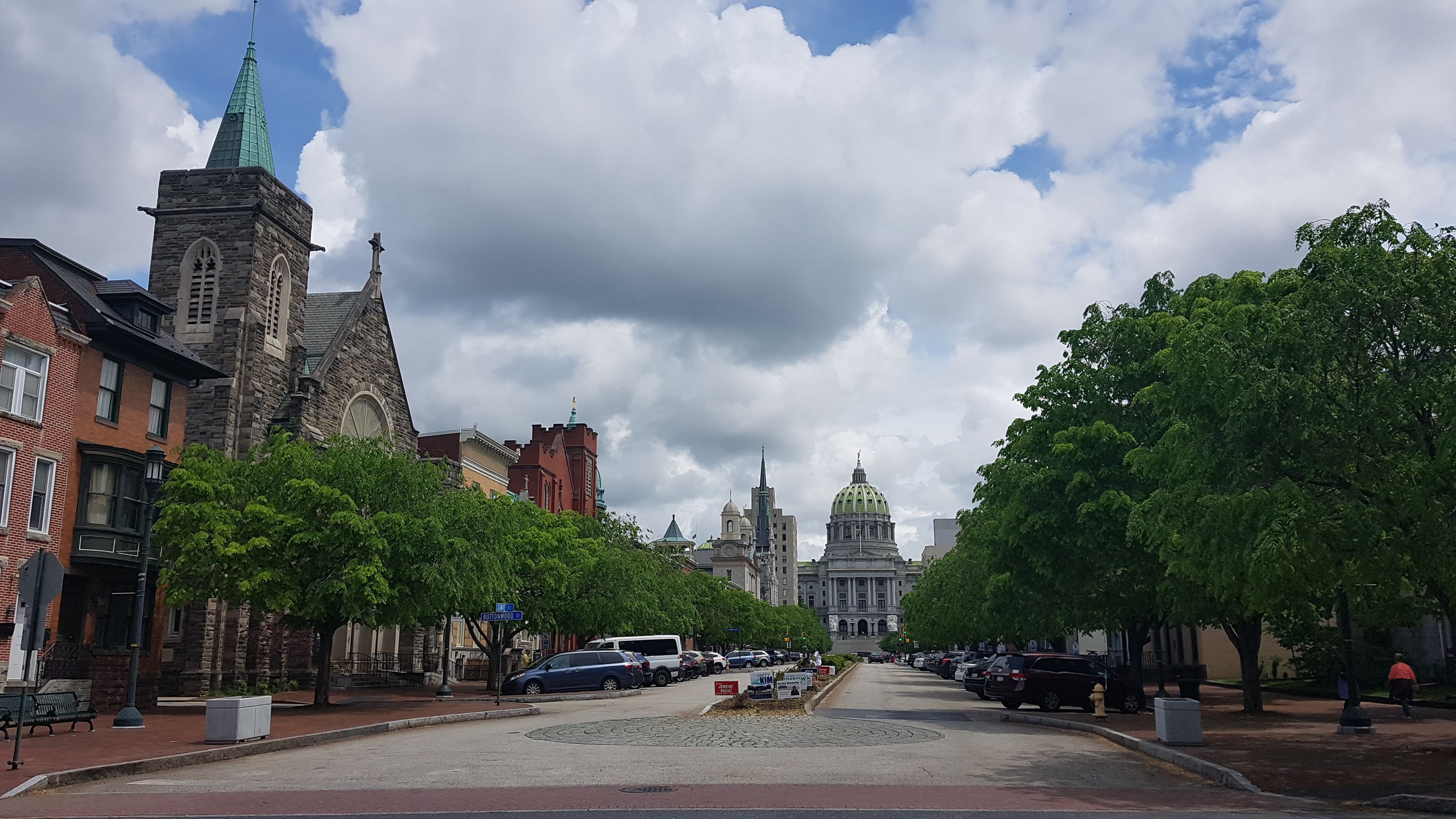


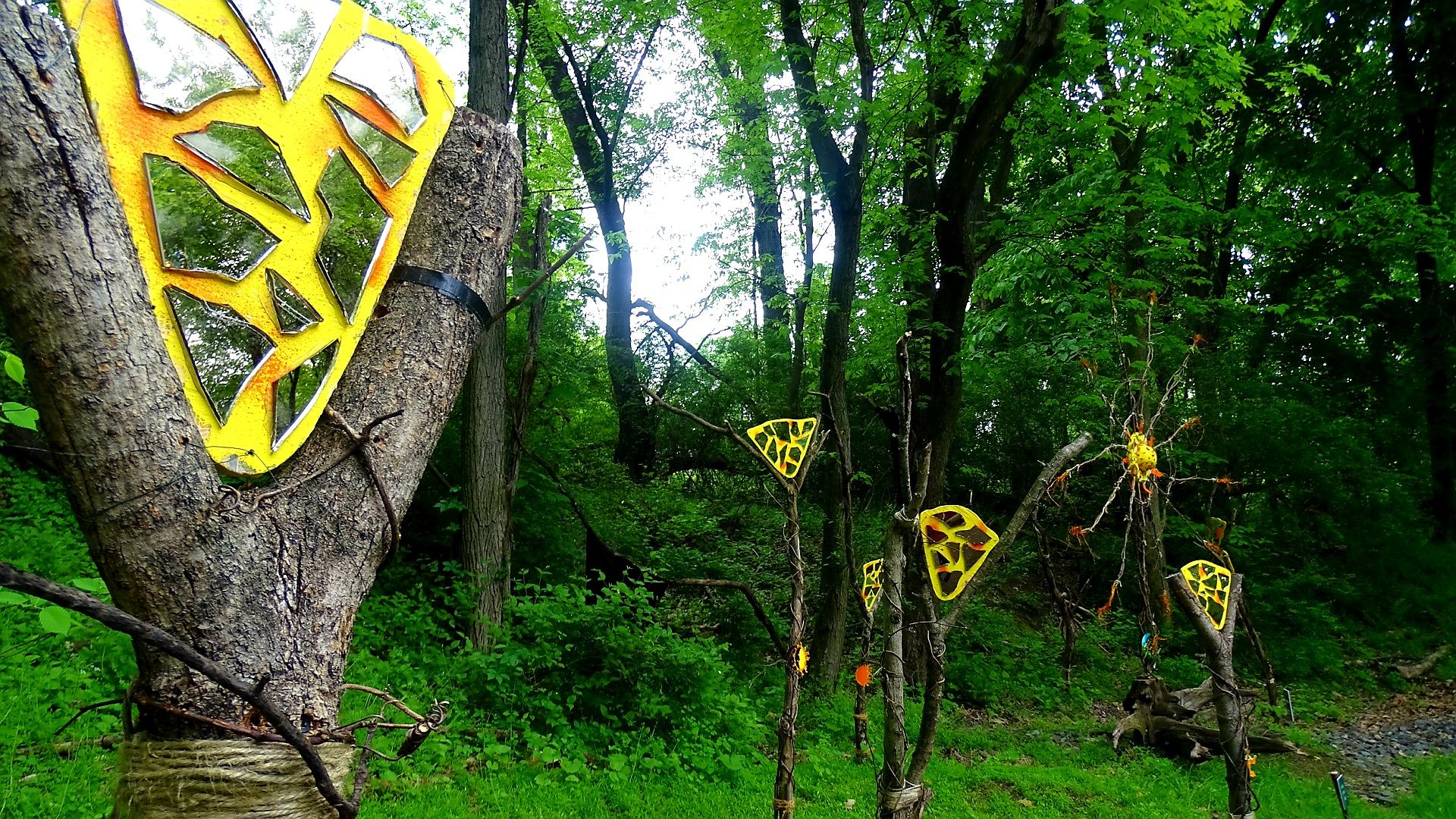
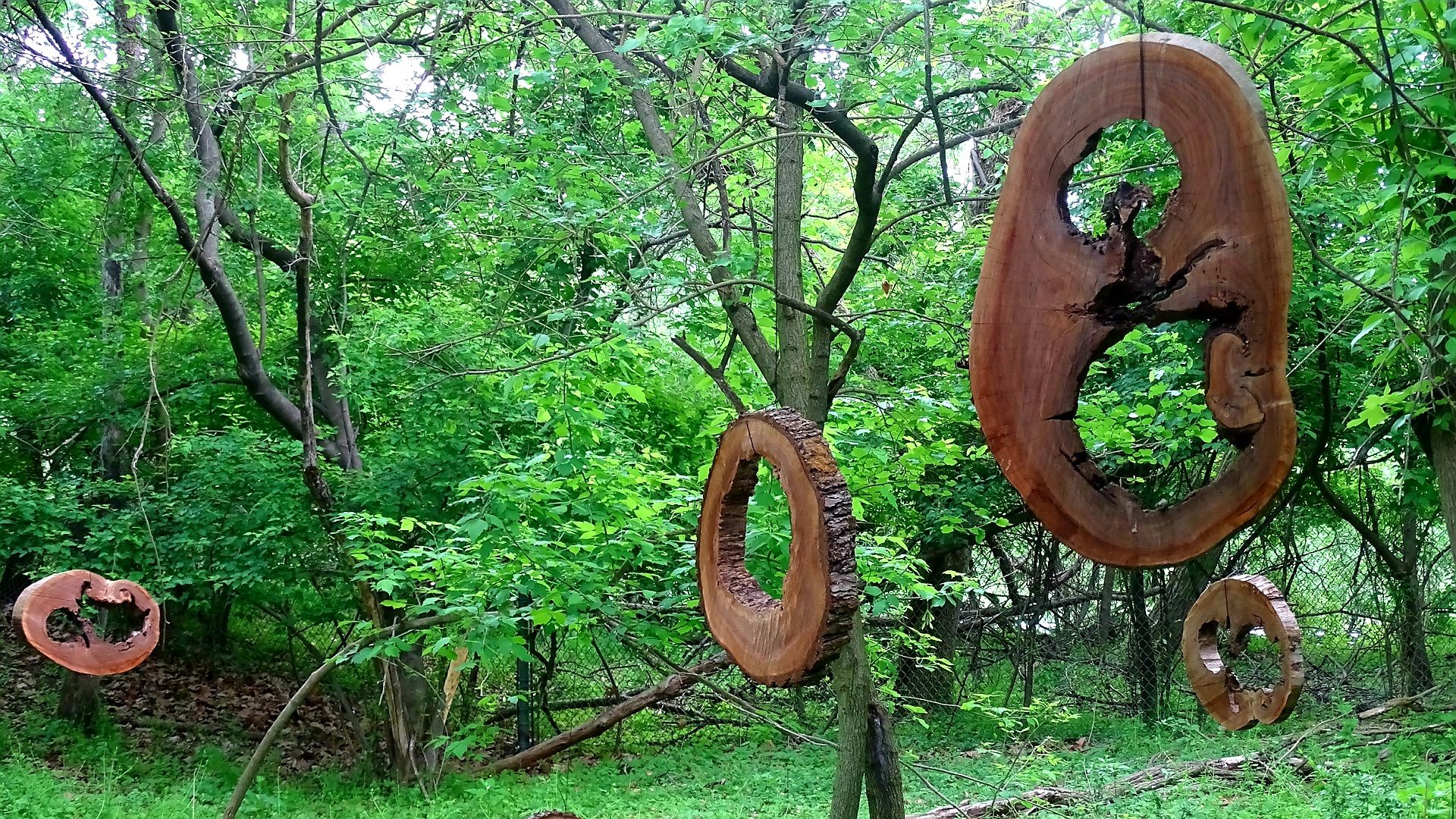

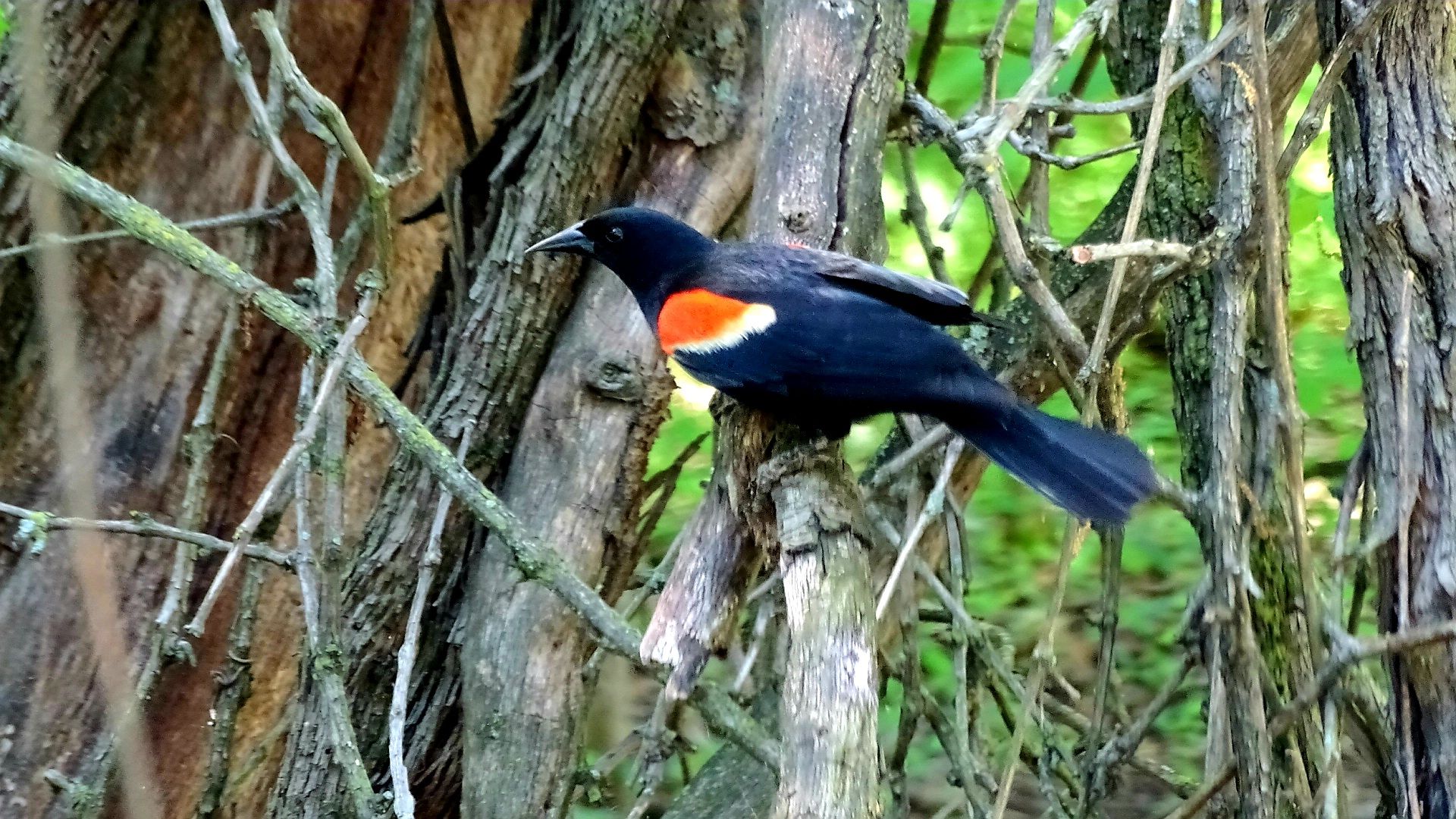

Saying goodbye to Kate was difficult. It's nice to have friends welcoming you in a foreign country and giving you valuable tips. So, based on the tips from Kate's friends in Canada, we decided not to bypass Lake Ontario on the Canadian side but to stay on the American side. Main reasons: The traffic in Toronto is hellish and should be avoided, and gasoline is more expensive in Canada than in the USA.
Second Tourist Highlight (after New York City): Niagara Falls
On our way to Niagara Falls, we stayed at an Airbnb in the Finger Lakes. These lakes are so named because they look like the fingers of a hand on the map. This area is home to many wineries and craft beer breweries. We visited some of them. But culture was not neglected either: We visited the Corning Museum of Glass, which was highly recommended by Kate. We were not disappointed, the artworks on display were very impressive:

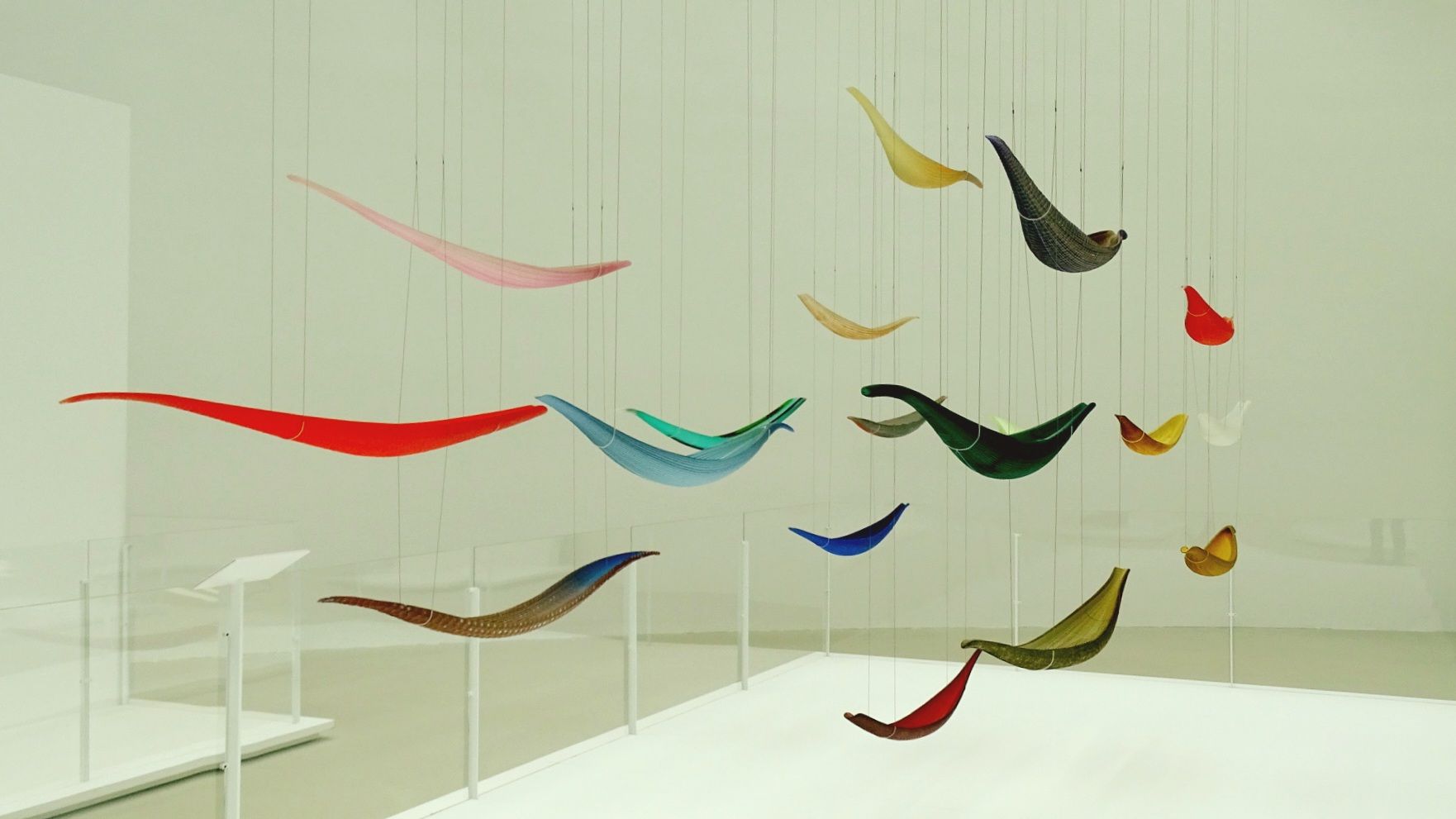
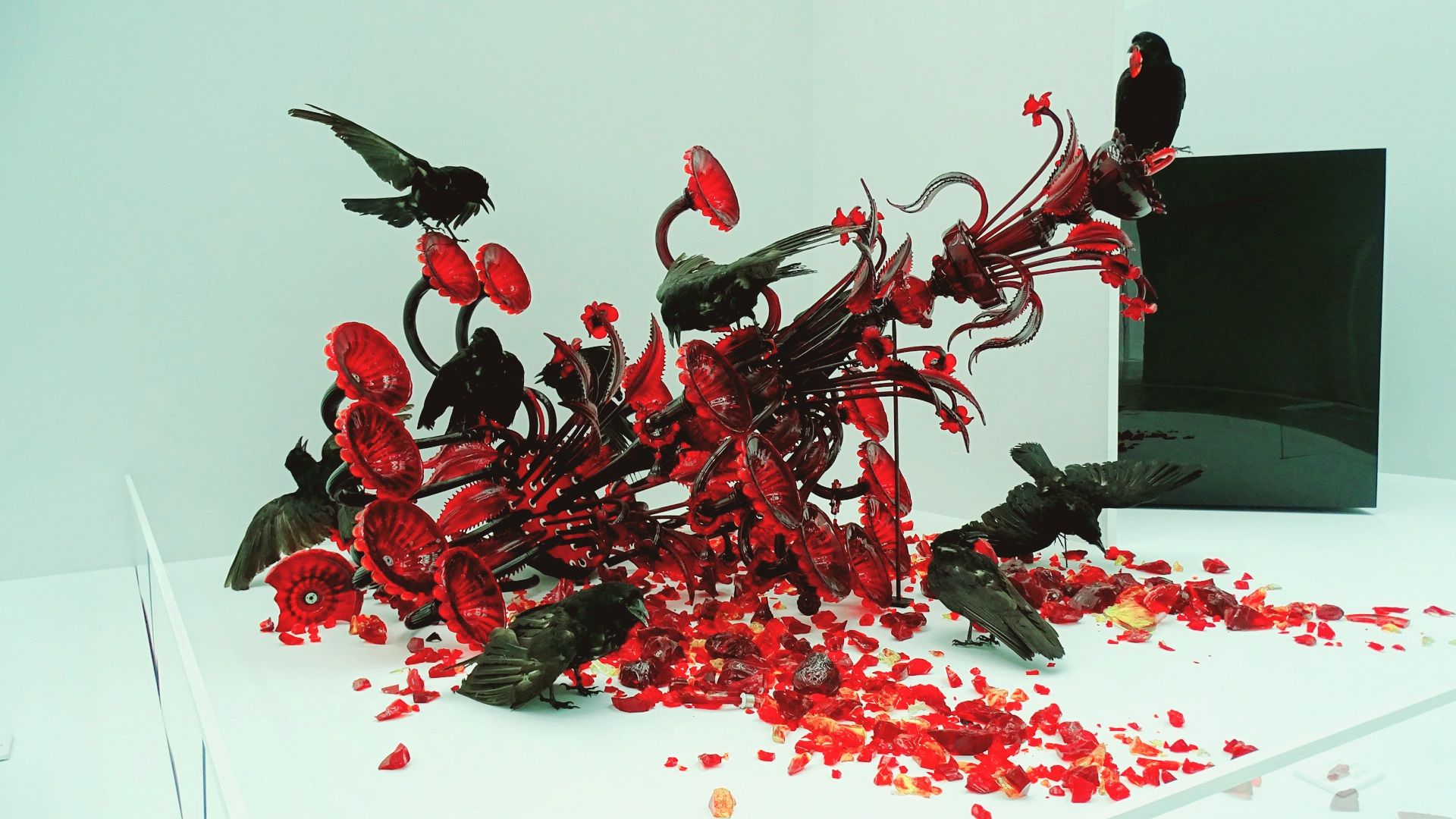


Our host Joe is a musician and has made a living because one of his band's songs serves as the theme song for the UFC: https://youtu.be/Gs6Vs32b63Q His farm is his hobby, and the Airbnb cottage on the property is as well. Joe showed us his farm, and Maurice was delighted by the chickens (I think it was mutual):
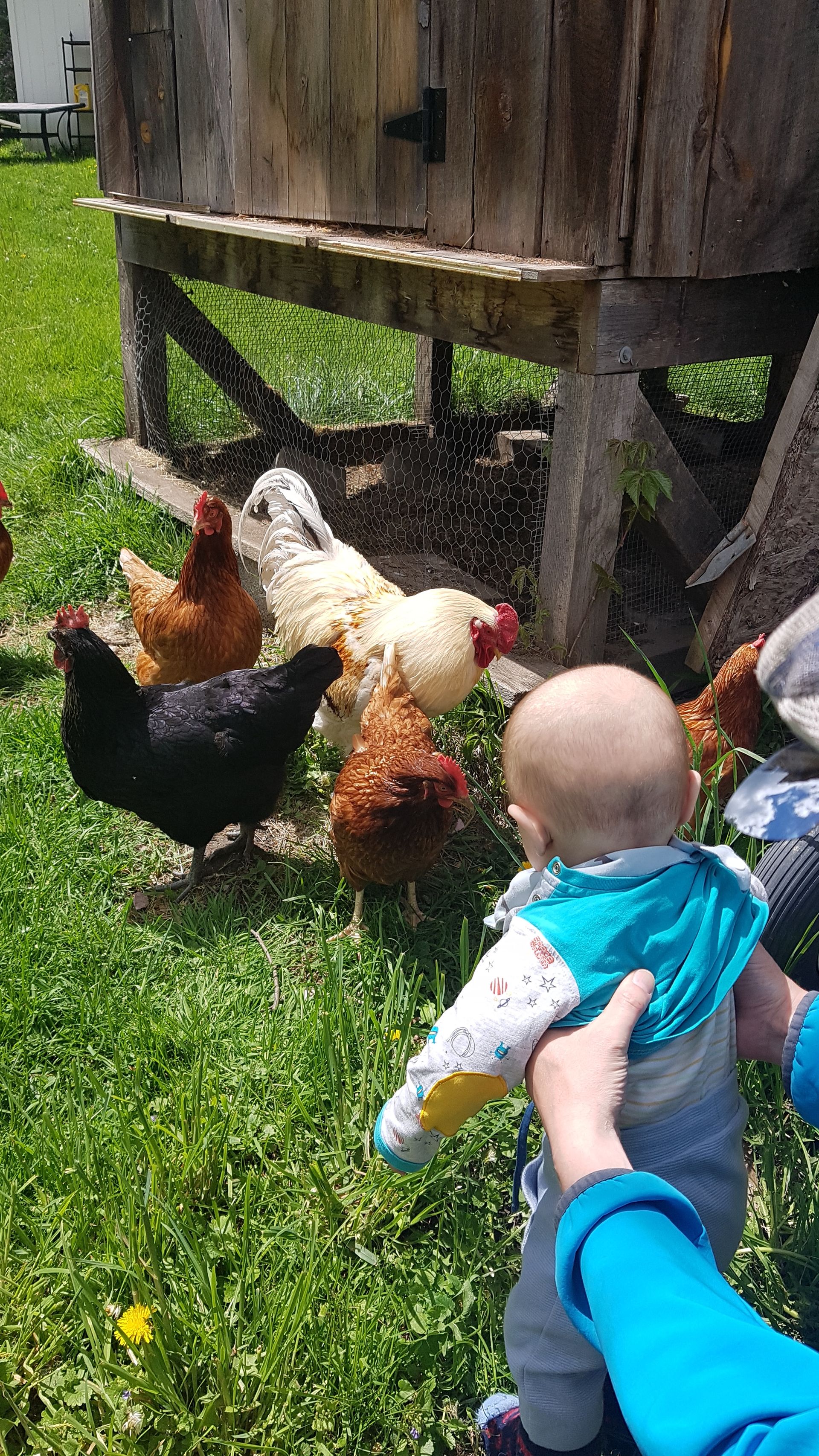
Joe is originally from Niagara Falls and warned us strongly not to venture too far from the tourist area. He said it is quite rundown and dangerous there. You might have heard about it in the news - less than 20 miles from Niagara Falls, there was recently a mass shooting in the city of Buffalo, in which many Americans with dark skin were victims. We didn't notice the dangerous atmosphere, but our hotel was also very close to the waterfalls and outside the critical area.
Niagara Falls is a fantastic natural phenomenon that you have to see. The rapids of the river start almost a kilometer before the waterfalls, and this rushing sound accompanies you constantly. We caught the last ship of the day to go right into the falls. On the advice of the crew, we stayed on the lower deck, and even there, we got wet enough. Maurice wasn't sure what to make of it, so I calmed him down with songs and jokes, and then he just fell asleep, haha.

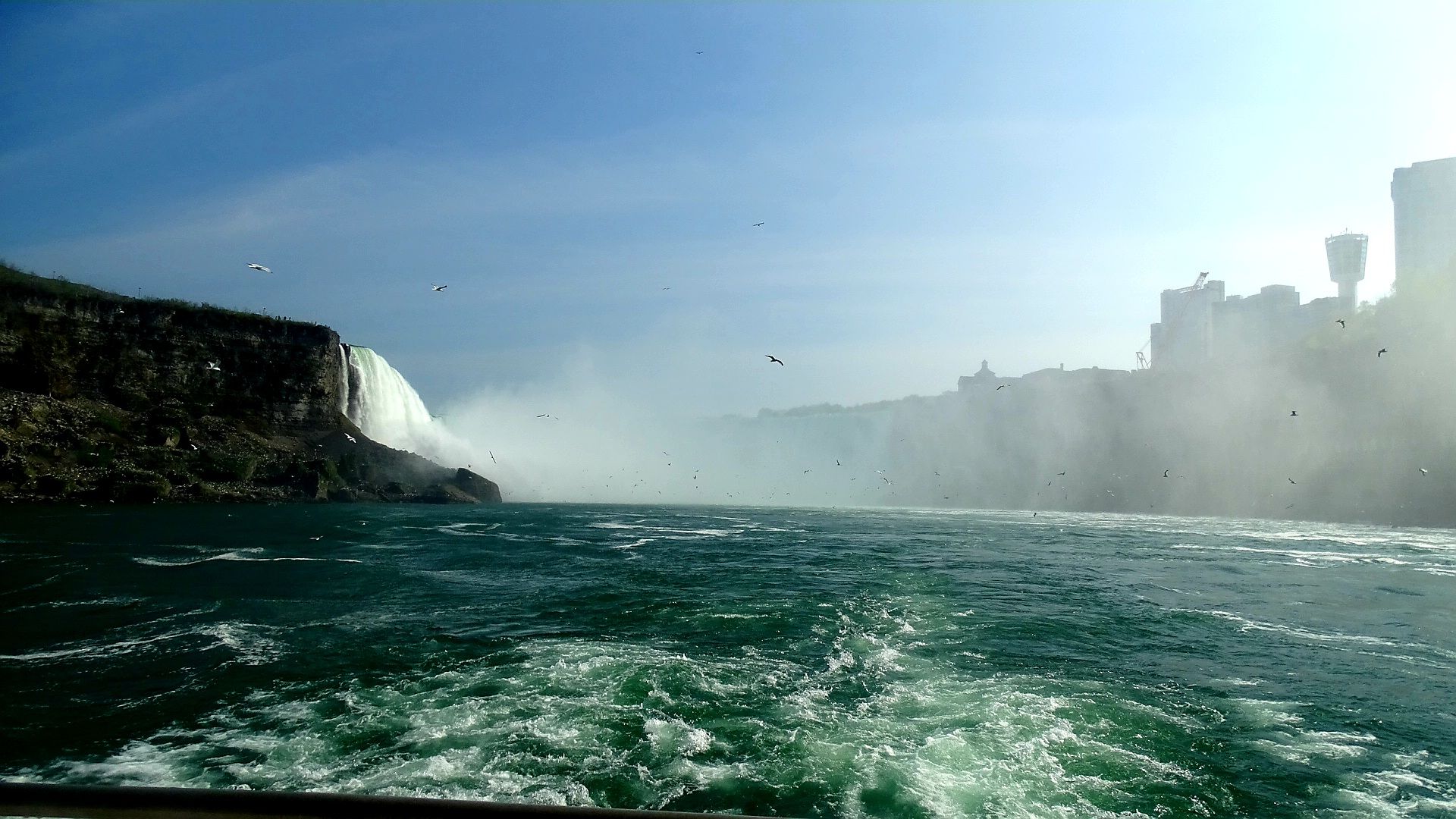
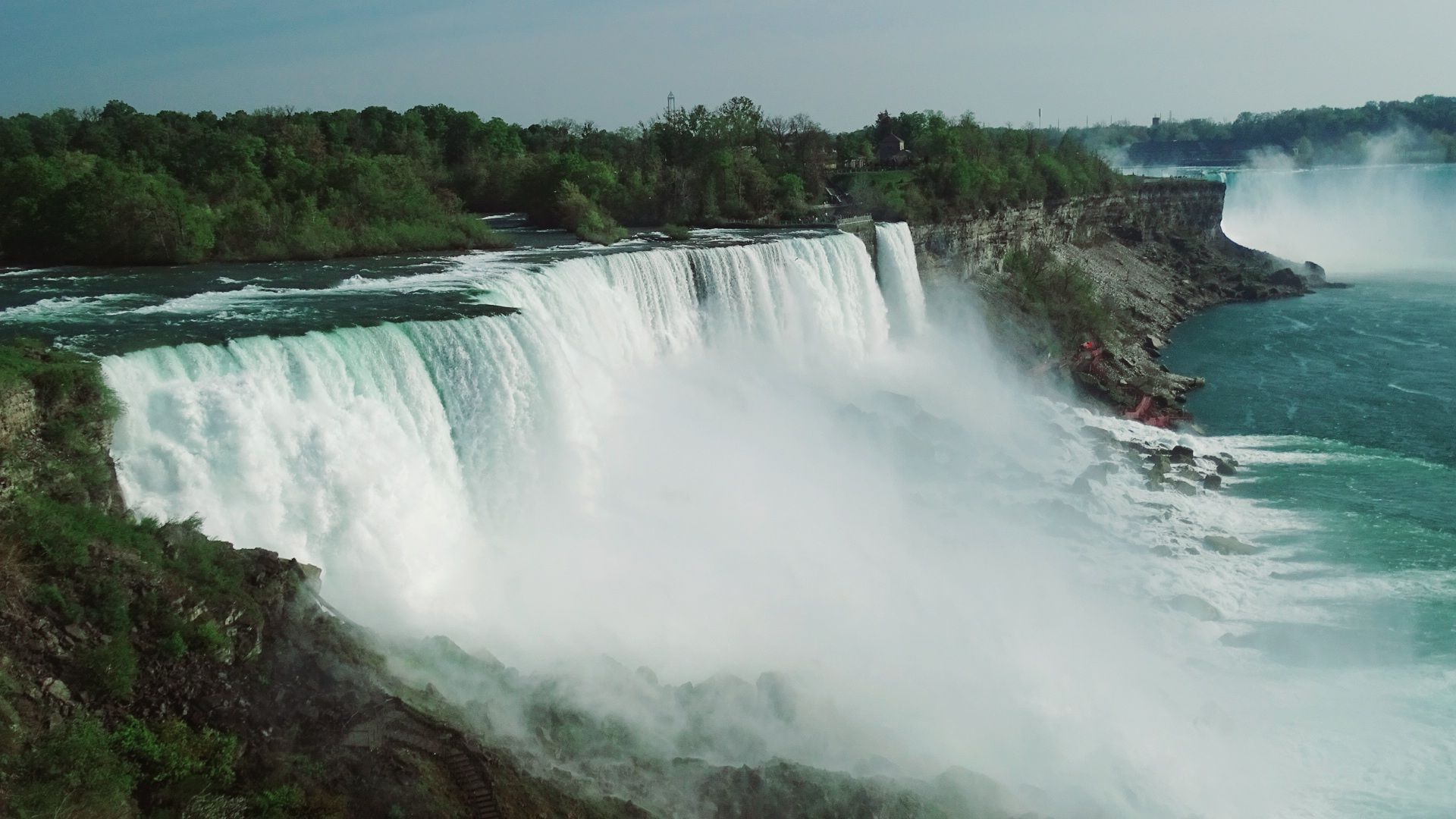



We only stayed one night at Niagara Falls because there is not much else to see in the area. We split the long distance to Montreal in half, which is why we ended up in the fishing village of Pulaski. Here, the fox and the hare say goodnight, and it is considered good manners to hunt and fish. Tomorrow we will continue towards Montreal, where we have rented a small apartment in the Hochelaga district for three nights. Our acquaintance Karl, who also lives in this neighborhood, will show us the city (conveniently, he is a professional tour guide).
The next update will either be shortly before our departure to Hawaii or from Hawaii. If you are particularly interested in certain aspects of our trip, feel free to write it in the comments, and I will address it in the next post.
Бюллетеньгә язылу
.Авап (1)
Christin
Ich möchte bitte viele Bilder von Hawaii. 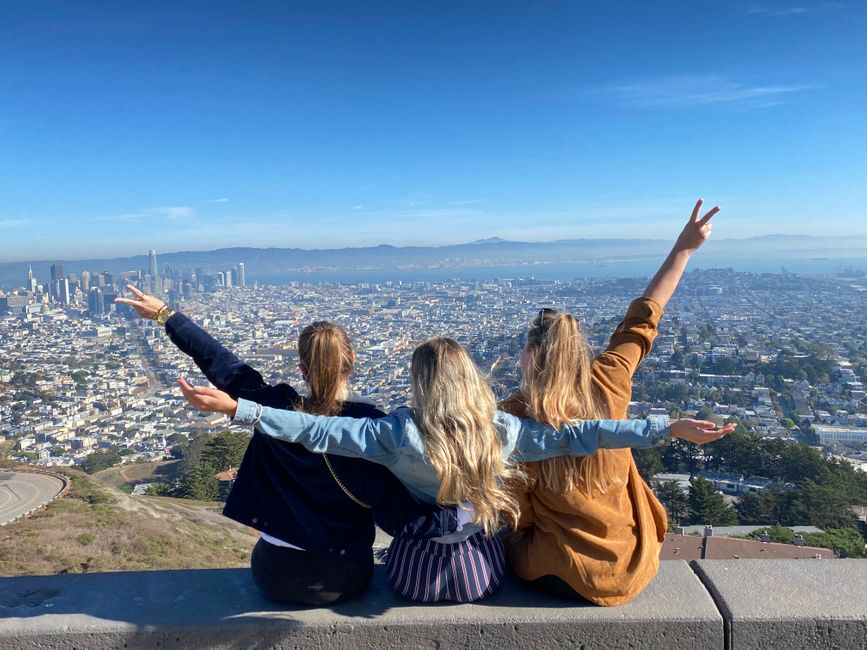
Сәяхәт отчетлары АКШ

